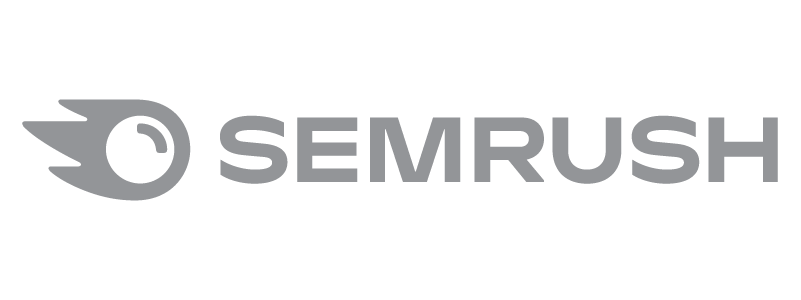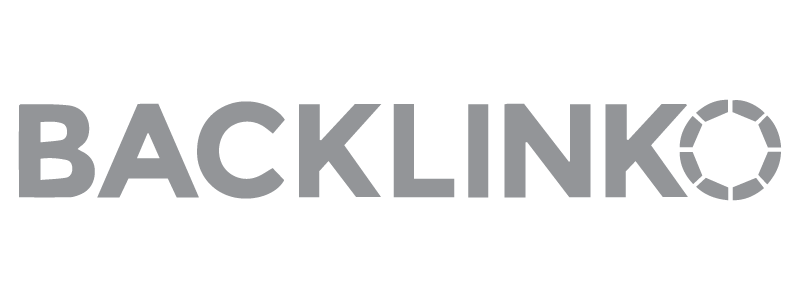The number of ecommerce tools is mind-boggling. From shopping cart software to marketing automation tools, getting your online store set up can be a confusing process.
With over 5 years in the ecommerce game and over a decade in internet marketing, I know what products work. The thing is not every product works for every type of store or person.
Knowing which help saving time and hassle and which are a waste of it is difficult. There are several ecommerce app categories you need to keep in mind:
- Website tools – to set up your store and help you manage it. There are free online store builders and there are also premium ones.
- Research tools – to find out about your competitors, identify opportunities in your niche, and learn how to improve your own site and campaigns
- Business tools – to manage the day-to-day operations, logistics and finances of your ecommerce store
- Marketing tools – to let the world know you exist, drive traffic, convert leads into customers, and build your brand
- Analytics tools – To tell you how well everything you’re doing is working and spot any leaks in your sales funnels
- Social media management tools – to manage day to day social media presence
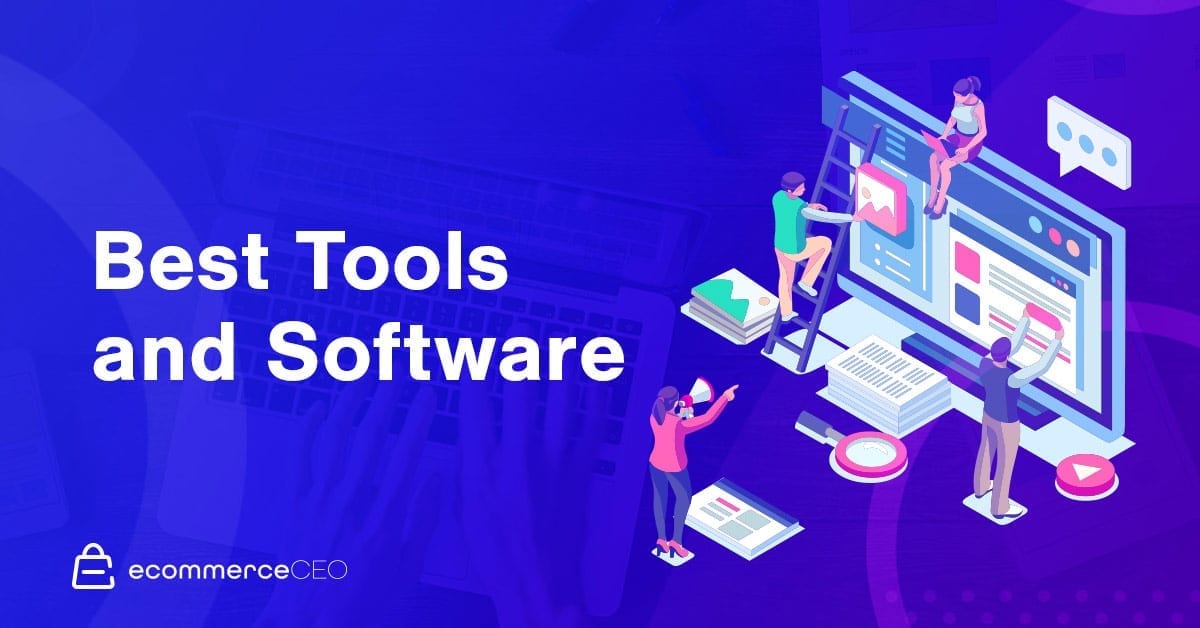
Each category of tool serves an important function in your business, but investing in every tool in every category would bankrupt even the most successful major enterprises.
There are simply too many tools to choose from, which is why I compiled this list of ecommerce tools. Before you spend a fortune trying everything there is, find out what’s worth your time and money, and what’s not. Combined with a smart marketing strategy, the right tools and ecommerce marketing tips can grow your online store.
Where and how to host your ecommerce website are important choices which influence your site’s visibility, downtime, and the fees you pay each month for hosting. Knowing what matters can also be a challenge – site visitors love fast loading speeds and a user-friendly experience, but as a website owner, you need to keep in mind scalability, logistics, and more, too.
To choose an ecommerce website tool or platform, keep in mind your technical skills and budget as well as factors like SEO, mobile-friendliness, onsite search (a good site explorer) and scalability which make it easier for users to find your site and for your business to grow. And don’t forget the importance of an ecommerce blog for your store. Having a blog is a great way to demonstrate authority and credibility, flex your SEO muscles, and heighten customer acquisition for your online business.
The list below is the creme de la creme; the website tools I’m willing to put my neck out and say will help you grow your online store. If you want a run-down on why and what other ecommerce shopping carts are out there, check out the full list.
Ecommerce Website Tools

BigCommerce
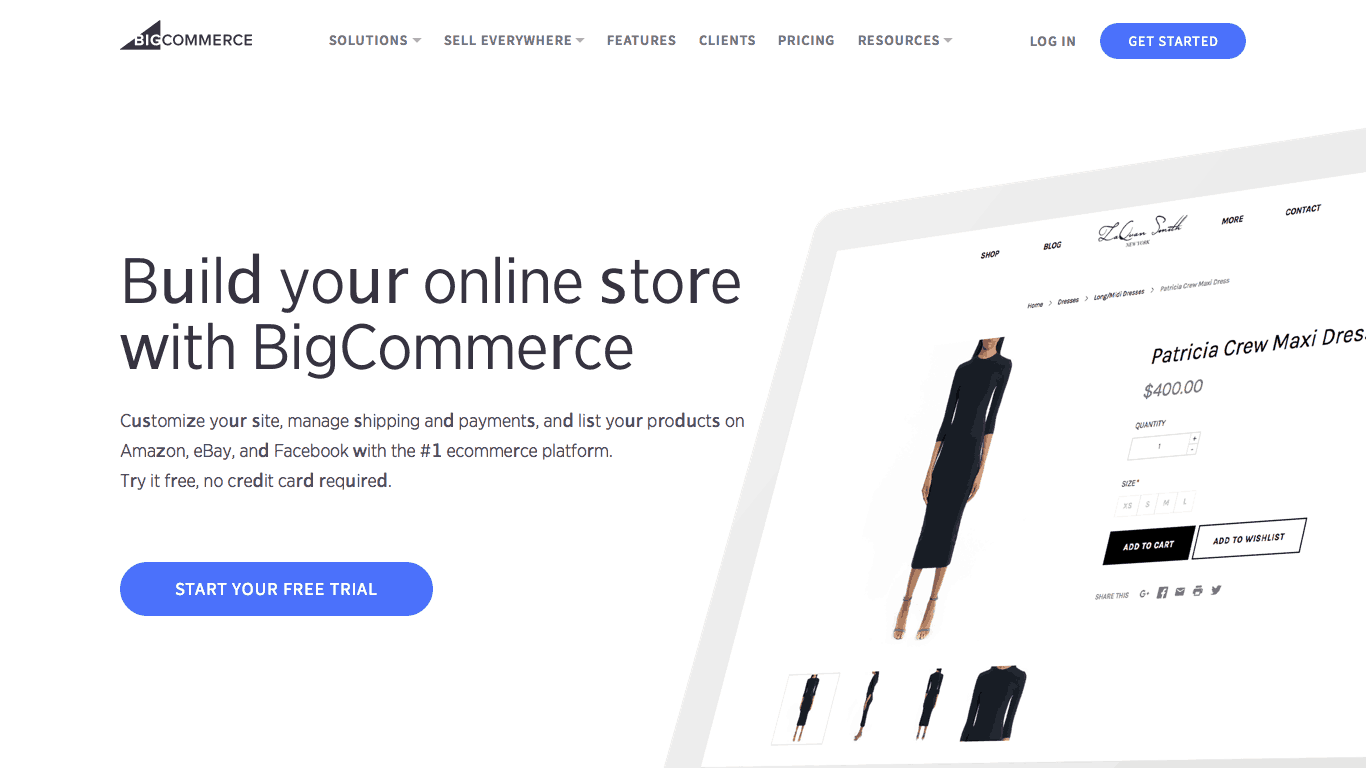
When you want off-site hosting and enjoy the flexibility of a drag-and-drop editor, options like BigCommerce or a similar SaaS ecommerce platform are ideal. Hosted ecommerce stores are faster at resolving technical issues (like a rush in ecommerce sales or server problem) that could cause your page to crash and costing sales. Easy to set up without tech expertise, feature-loaded, and readily scalable. The only drawback is that the monthly fees can be steep for this type of ecommerce tool.
Wix
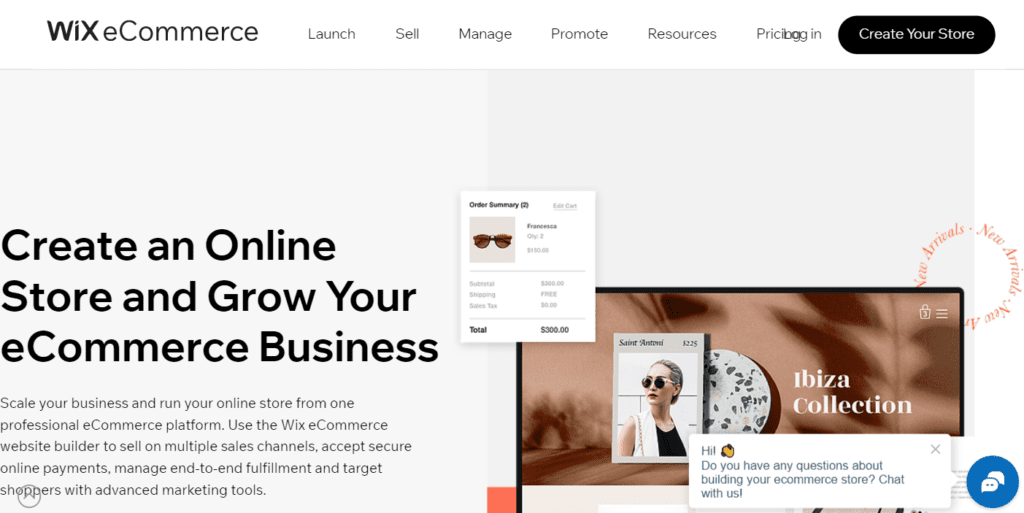
When your budget is strapped, Wix is a strong option. A truly exceptional ecommerce website builder, it competes with WooCommerce and Shopify in the number of features offered. For ease of use, it’s as good as you can hope for from a free ecommerce platform, although if your store grows quickly, however, it can be a little tough to scale.
Shopify
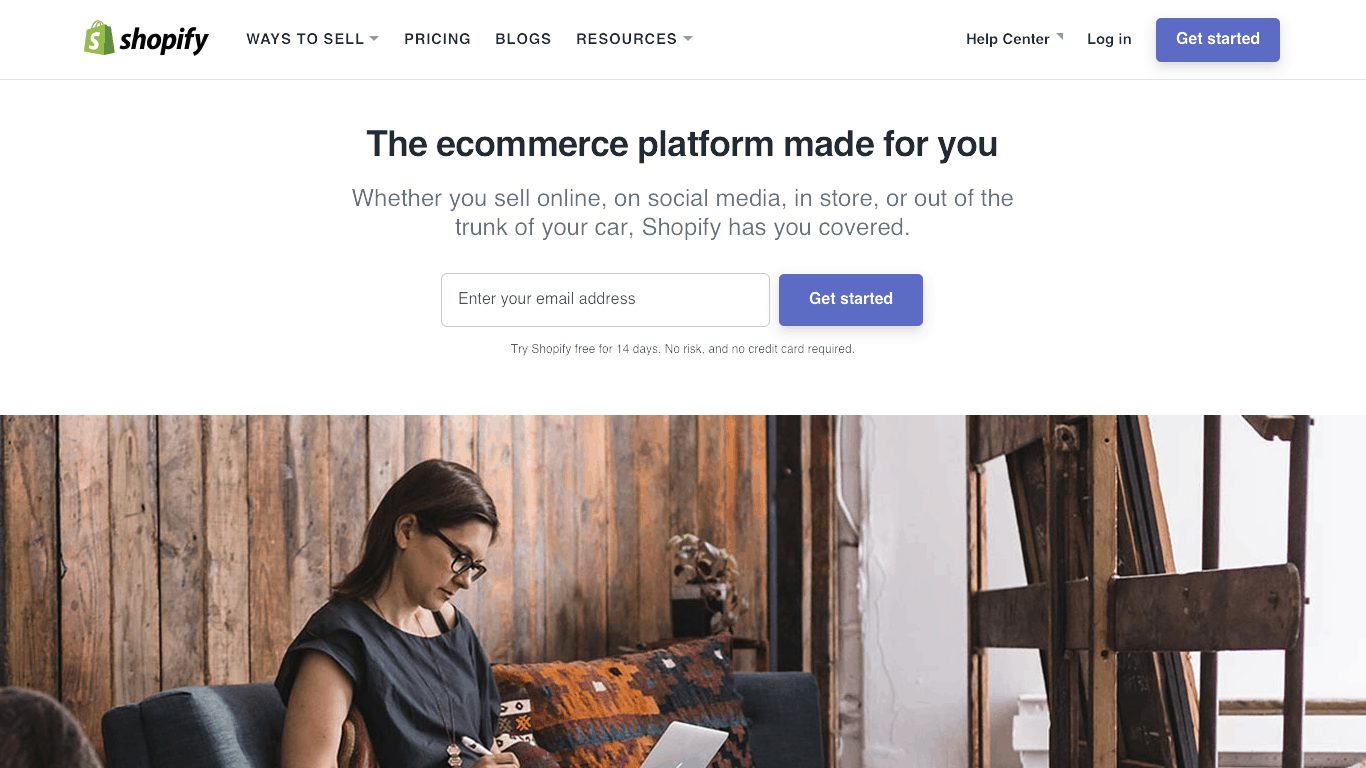
When you’re tech skills are minimal and you don’t have the resources to hire a web developer, Shopify and similar ecommerce tools are a good pick. Feature-loaded, scalable, and offering numerous templates for different niches, Shopify stores are plug-and-play ecommerce. Ranking issues, clunky WordPress plugins, and URL structures that are difficult to modify can make increasing retention rates with on-site SEO tough, though.
WooCommerce
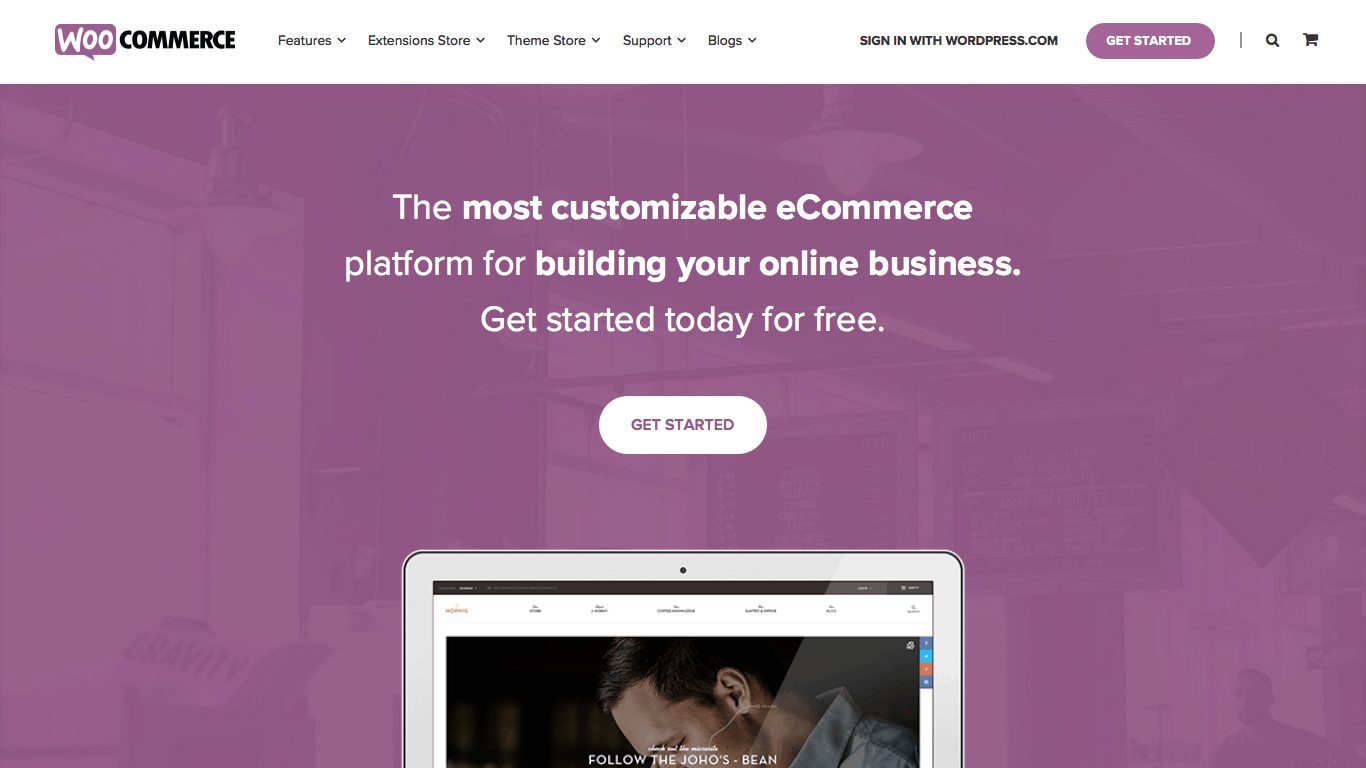
For ecommerce store owners who love WordPress and are comfortable with it, WooCommerce is a good pick. A free option, it’s a little difficult to scale but scores well for site visitor experience. You’ll need to buy upgrades if you want all the bells and whistles, but a site built on WooCommerce can compete with those built on some of the more expensive paid carts.
Ecommerce Research Tools

Growing a successful ecommerce business is all about gaining a competitive advantage. If you’re clueless about your competitors, you lose.
Most good ecommerce research tools are accessibly priced or offer trial versions, making them available to all business owners. Of the hundreds of options that exist, we’ve identified three most ecommerce businesses can benefit from using.
JungleScout

Unless you’re in the business of white labeling or manufacturing your products, one of your store’s top concerns is the merchandise you carry. Jungle Scout helps you to identify the top products for your niche and to track their performance on Amazon.
If you are selling on Amazon and from your own site, it’s an intelligent choice for product research. Pricing for the app ranges from a $29 monthly subscription which lets a single user track up to 40 products to a $197 one-time fee for the app’s Chrome extension that provides details on profit margins, item trends, monthly revenue, and more. Check out these Jungle Scout alternatives.
SEMRush
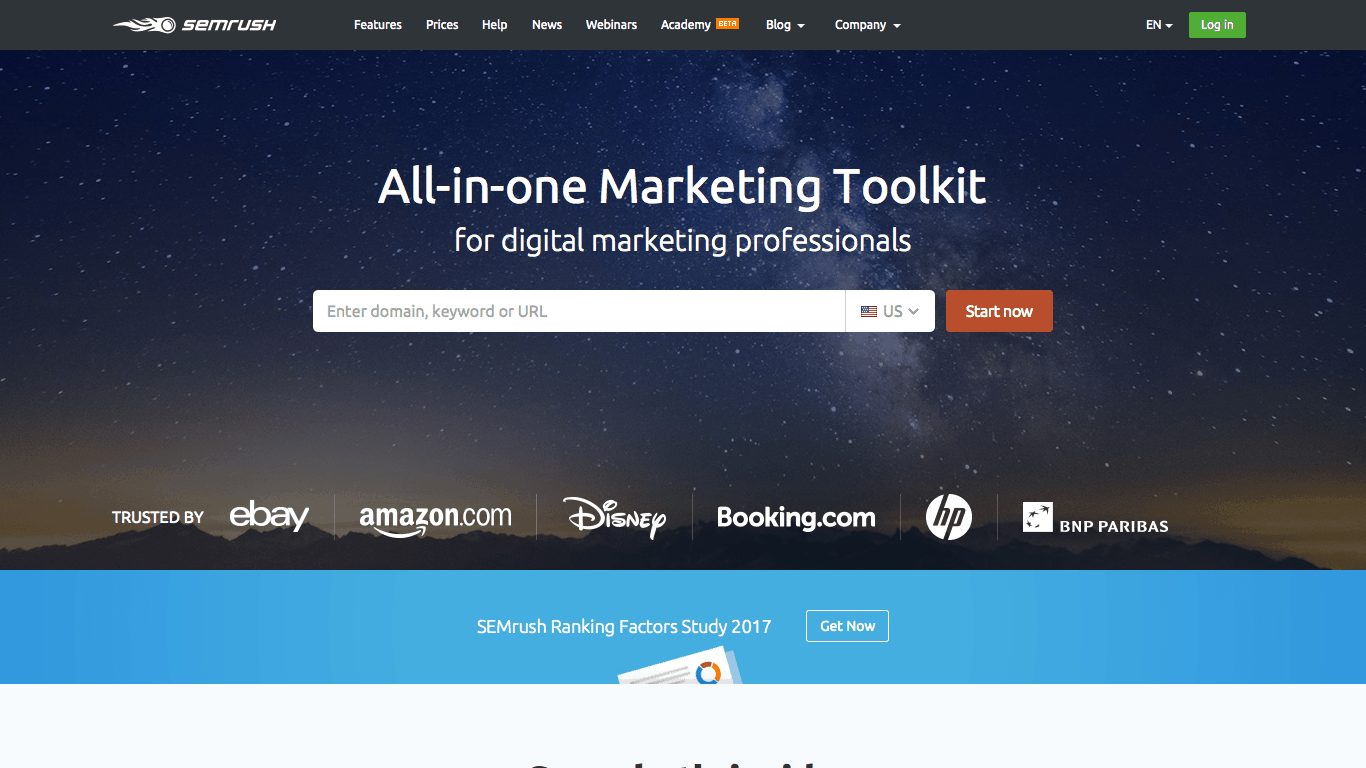
Ecommerce business owners who want insight into their page’s performance, top keywords in their niche, and their competitors can benefit from SEMRush. This ecommerce research tool tracks more than 106 million keywords and tracking more than 87 million domains.
You can audit your own site or your competitors and receive a report indicating strengths and weaknesses of a complete site, compare sites in your niche, improve SEO and identify keywords, or analyze ad campaign performance. Prices range from a monthly subscription of $69.95 to a yearly fee of $5,499.50 based on the number, purpose, and depth of reports you need.
Ahrefs

I use Ahrefs for understanding the web marketing strategies of ecommerce sites. You can easily figure out a competitor’s marketing strategy by looking at their backlinks. If you could only afford one SEO, research tool – it would be Ahrefs. It’s a great all in one tool but does lack some deeper features like content analysis and link auditing.
Linkio
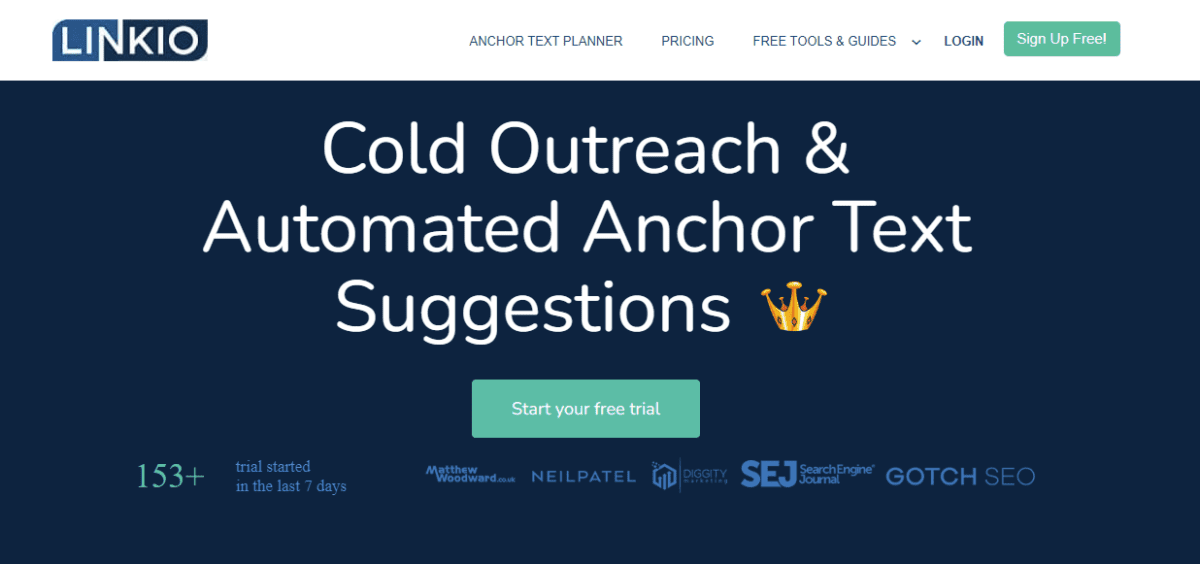
Linkio is a useful competitive analysis tool for marketers looking to improve their rankings through link building but aren’t sure how many links to build or how the competition is ranking. Using Linkio’s combination of APIs and crawlers, you can create a link building blueprint that answers questions related to quantity and types of links to build. In addition, a rank tracker and backlink monitoring module helps track progress and an email module helps you automate the blogger outreach.
Ecommerce Business Tools

Once you have a store, you’ve got to fill it with inventory, keep track of your employees or outsource workers, track your budget, and tackle the day to day financials. Starting with a good task manager helps make the mountain of tasks facing you feel a little more manageable, and tracking your time (and your employees) helps keep you on target.
Look for tools that streamline your business processes in a way that meshes with your own natural system of organization. Do the features offered match the tasks you need to do, or are they more like shiny objects that distract you from doing what you need to?
The tools below are my go-to choices for keeping operations running smoothly. Take a look at them, give free trials a chance if their function matches your business and a free trial is offered if a particular tool looks like a good fit for your ecommerce store.
Monday
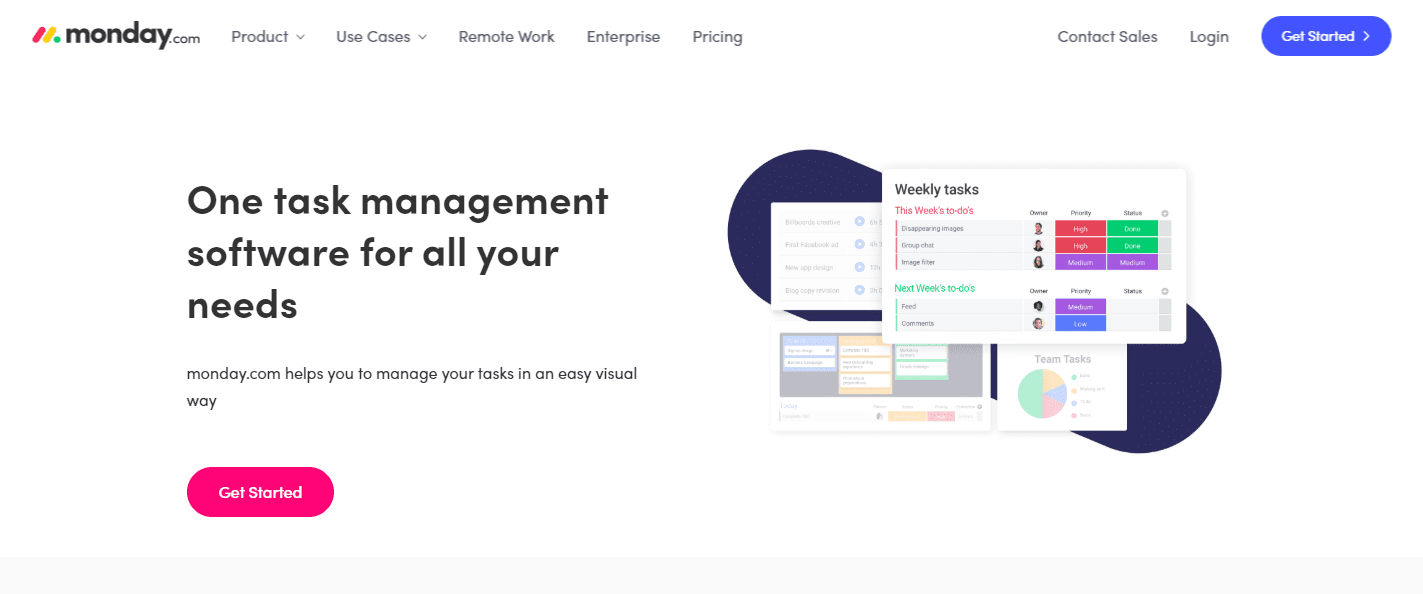
Monday is the productivity tool of choice for our team at Ecommerce CEO. In addition to being a good task manager, we use Monday to manage our projects, leads, content calendar, and processes. At first, it was a bit overwhelming, as most highly flexible tools are. But now that we have the hang of it, I can’t imagine life without it.
SignNow
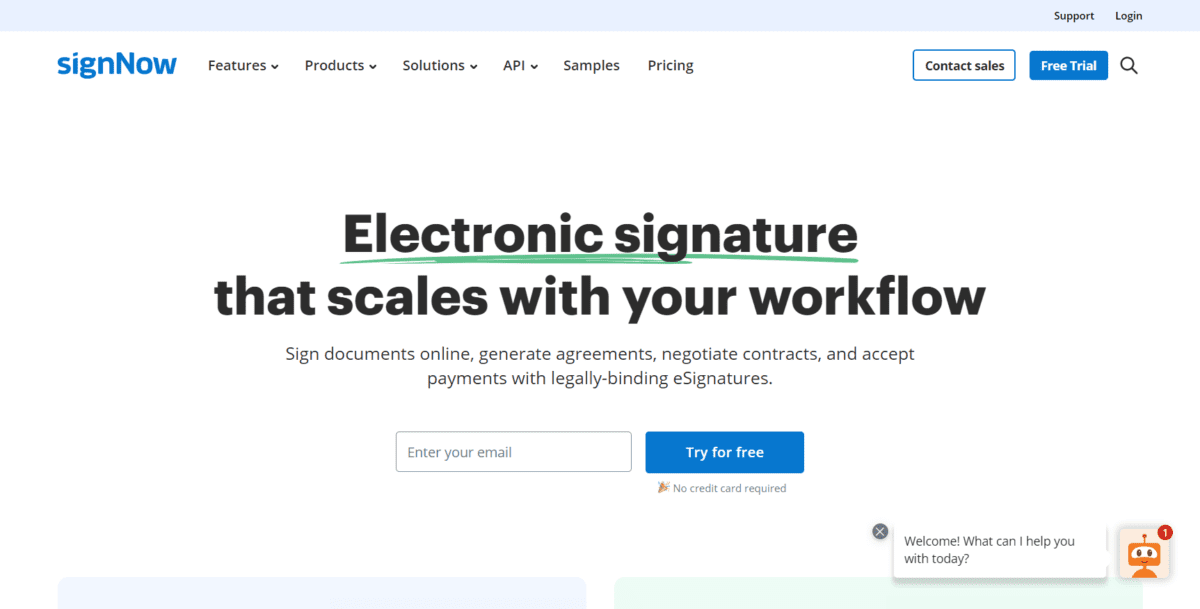
SignNow makes it easy for online businesses to manage backend processes – particularly when it comes to digitally signing documents with legally binding signatures. Whether you need customers to sign service agreements or sign documents with your vendors, SignNow can streamline your efforts.
Plans start at $8/user/month (with up to a 60% discount available for annual billing).
Sourcify
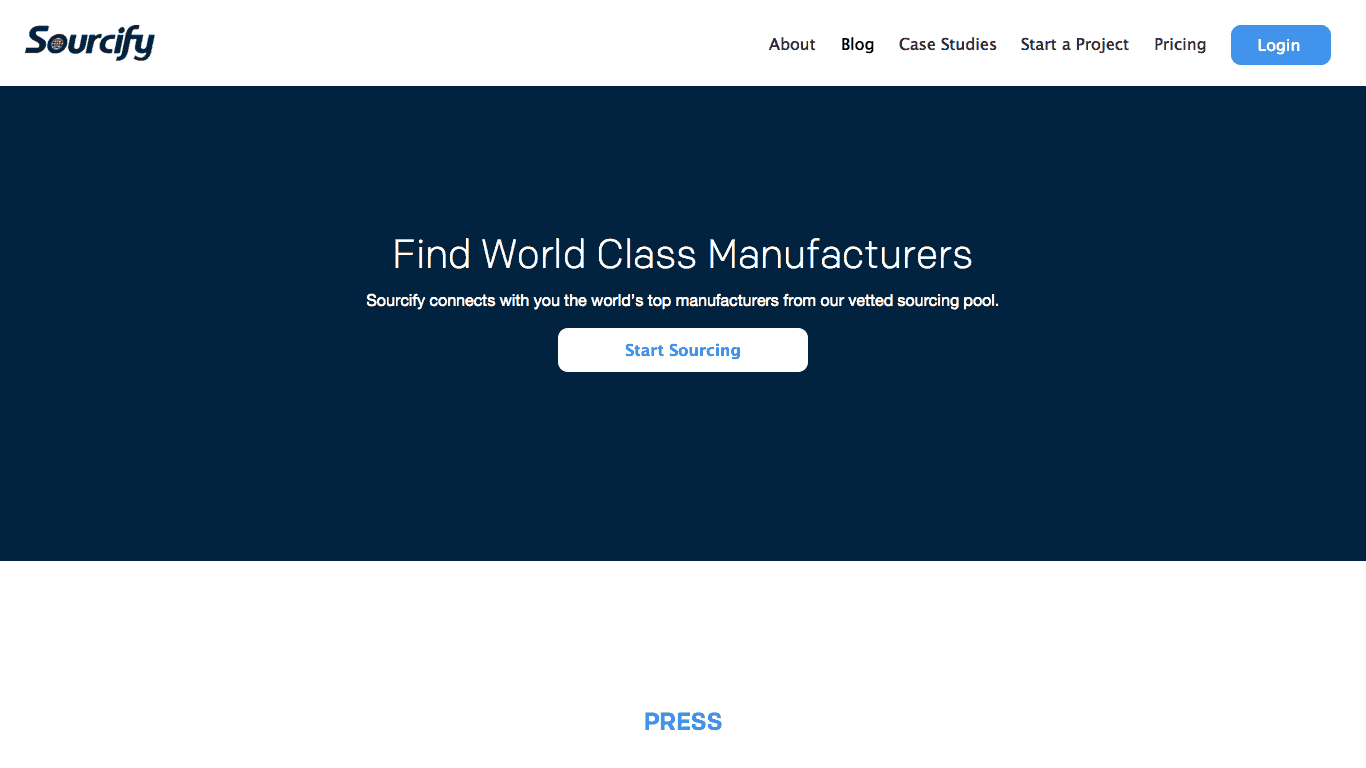
A matchmaking service for companies looking to manufacture a product and manufacturers looking for clients, Sourcify reduces the risk associated with the manufacturing process by vetting their manufacturers. The service provides a money back guarantee if store owners aren’t happy with the final product. Sourcify also provides project management tools to smooth the production process and provides users with bids from three manufacturers for each project. There are three pricing plans, starting at $399. The primary difference between plans is the number of units per production run.
Veeqo

Veeqo is an inventory management solution that helps small businesses selling on multiple channels stay on top of orders and avoid overselling. Veeqo offers over 40 integrations to pull in inventory from all of your channels in real-time, updating all of your stores when you make a sale. Control exactly how much stock shows for every store, keeping your inventory levels 100% accurate.
Zoho Inventory Management
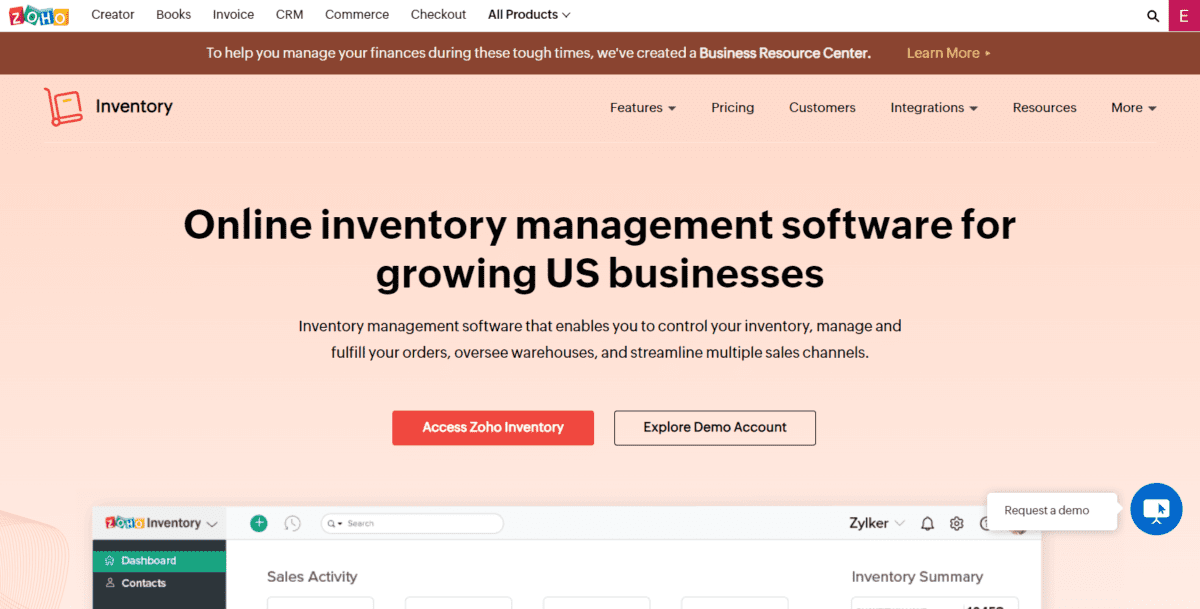
Zoho offers a suite of business tools to support businesses in a variety of industries. The inventory management software makes it easier to manage inventory, handle order fulfillment, and more, across multiple sales channels.
The free version supports up to 50 orders a month from a single warehouse with two users. Paid plans range from $59 to $239/month (billed annually) depending on the order volume, the number of warehouses, and the number of users. More free inventory management software options are here.
Tickspot
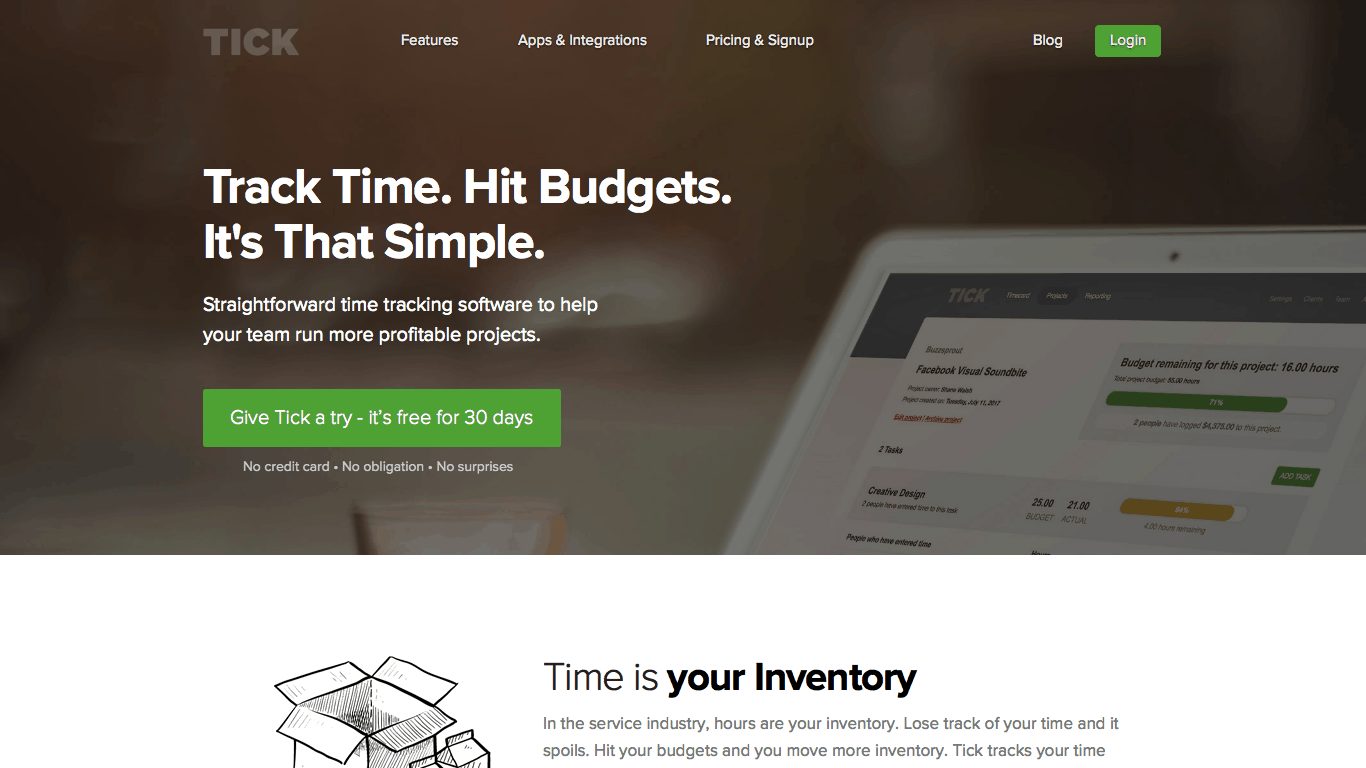
This time management software makes keeping projects on budget an easy task. Users can log hours, track the amount of time spent on each task, take notes, and jump between multiple timers based on the task they are working on at the moment. Ecommerce store owners can make use of TickSpot’s report functions to keep an eye on project budgets and productivity, assign tasks to members of their team, or set recurring projects from within the app. Pricing ranges from free for a single project to $149 for unlimited projects.
Asana

Available to businesses and individuals, Asana is a task management SaaS platform that allows task assignment, scheduling, and tracking. Files can be imported or linked to from within the platform and team members receive reminders for upcoming and recently missed deadlines. Discussion boards and team conversations allow for clear communication and collaboration from anywhere in the world. Many freelancers are already using Asana, making this a natural choice for managing your outsourced tasks, including content marketing and content creation. Most small teams can get by with the free membership, but Asana Premium is also affordably priced, ranging from $6.25-11.99/month based on payment options and number of users.
Inventory Source
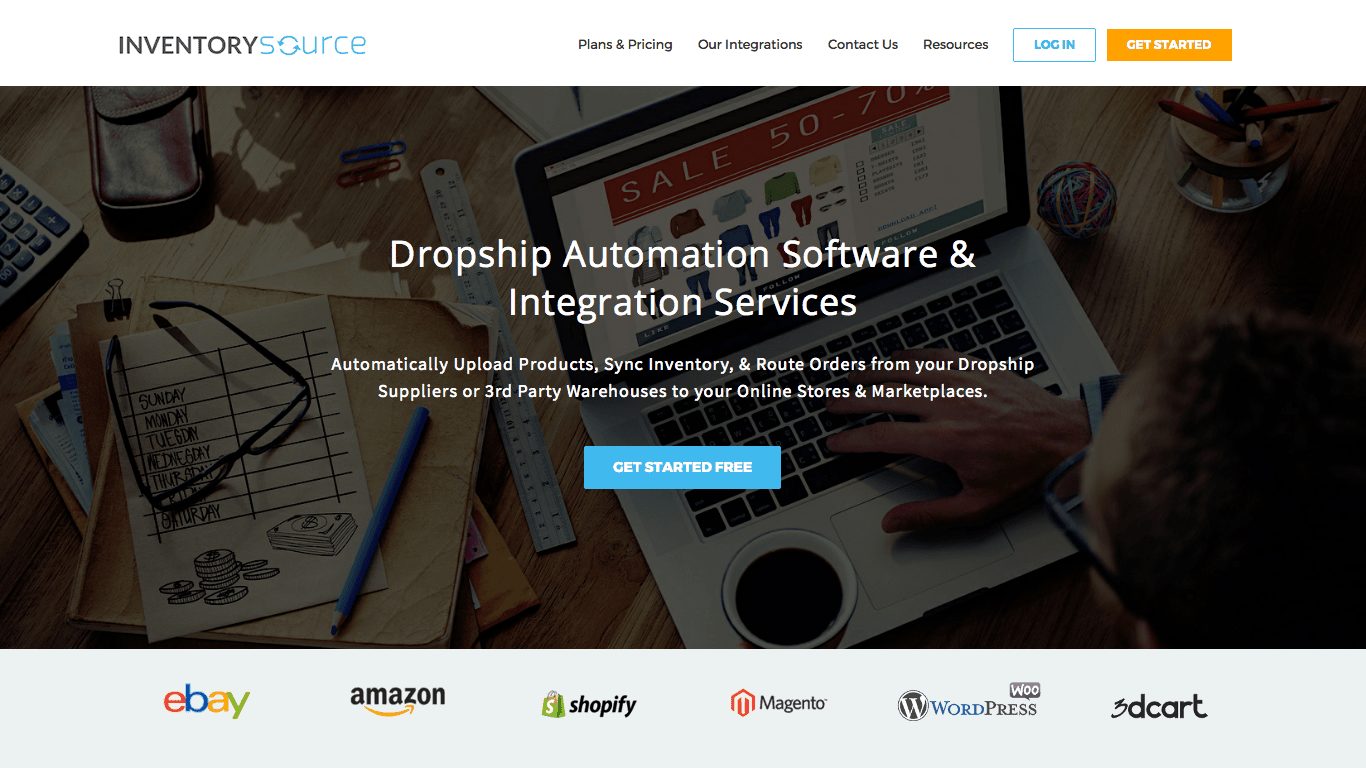
Available as a fully-automated SaaS ($199/month) or solely for inventory management ($50/month), Inventory Source automatically syncs your inventory, updates your website, and integrates ordering and tracking functionality. You can buy additional features like Push to eBay and a Turnkey Shopify website.
Inventory Source can save you the embarrassment of “out of stock” messages on popular products on your site. Over 100 drop shipping companies are integrated with Inventory Source, but if your preferred vendor is not on the list, you can add them. Inventory Source has more than 20 integrations, including Shopify, WooCommerce, 3D Cart, BigCommerce, Walmart, Amazon, Jet, Adobe Commerce, X-Cart, and Ordoro. Custom integrations are also available.
Spocket
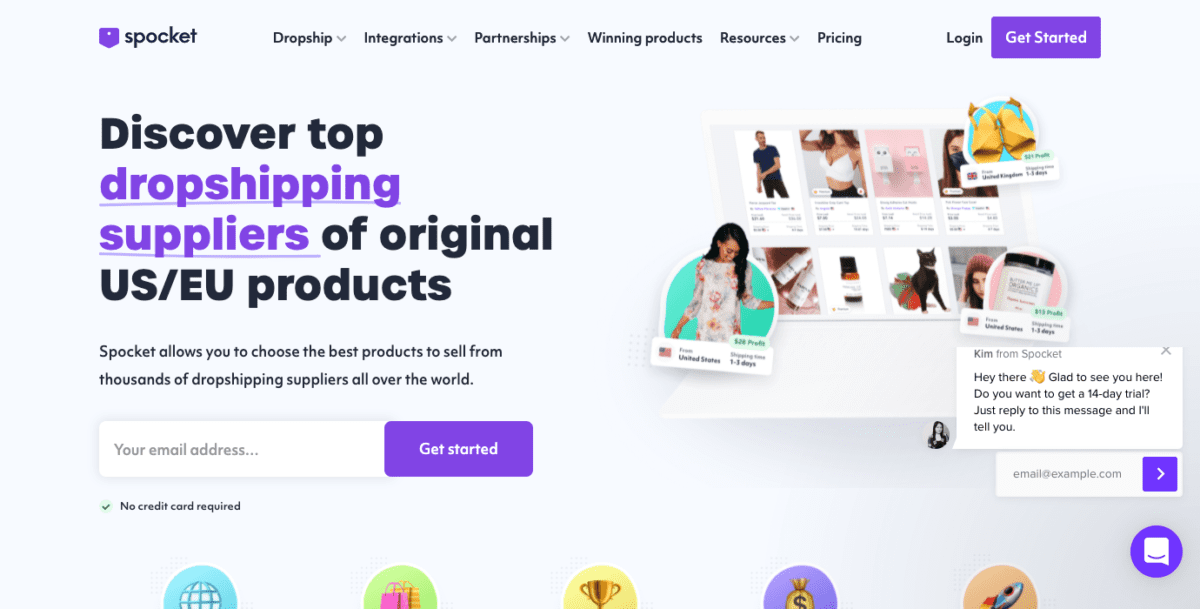
An Inventory Source competitor, Spocket’s interface is more user-friendly, but many of the functions are similar. The software helps ecommerce store owners import, customize, and track drop-shipped products. There’s a free plan, along with a 14-day free trial on all paid plans. Paid plans start at $24.99/month.
Shipwire
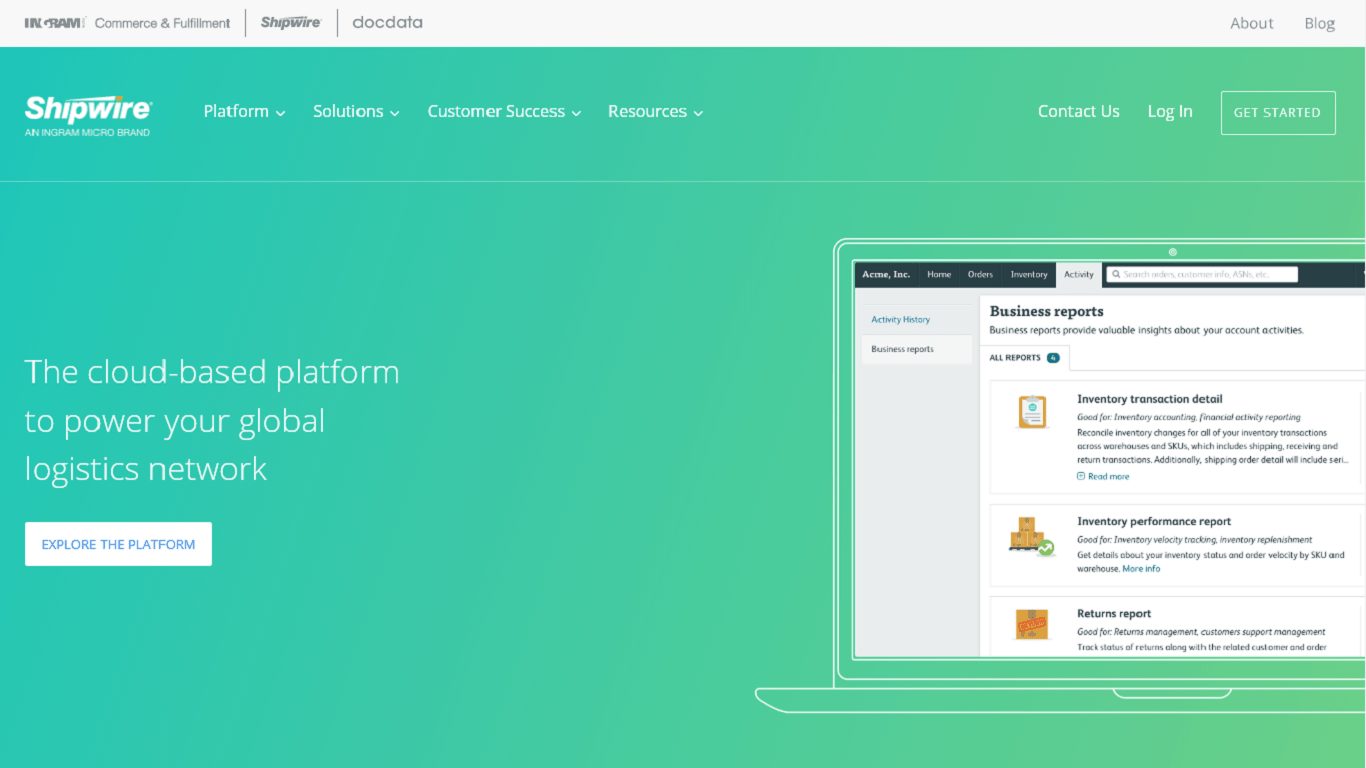
Using a network of third-party warehouses and Ingram Micro’s fulfillment centers, Shipwire keeps your inventory securely stored and close to your customers. The idea behind this SaaS inventory management, tracking, and shipping business is solid. Just one catch: Shipwire is facing numerous customer service complaints due to unclear billing practices and faulty shipping practices. Pricing information is available for download on their site, but be aware that a minimum $500/month shipping fee is charged by Shipwire to all customers, regardless of the number and value of orders shipped.
TradeGecko

Founded by a former clothing retailer, TradeGecko is designed to make the backend of retail easy. The company offers four monthly plans: Basic ($99/mo), Business ($249/mo), Business Premium ($449/month, $359/month if paid annually), and Enterprise ($999/month, $799/month if paid annually).
Tackling tasks like inventory management, order syncing, product bundling, and running reports, TradeGecko helps you avoid oversells and stay on top of inventory without the need for spreadsheets and headaches. The startup is still ironing out some bugs, but is quickly gaining recognition as a vital part of many small and medium ecommerce stores. It’s compatible with Adobe Commerce, Shopify, Amazon, WooCommerce, and several top tools.
Shipping Easy
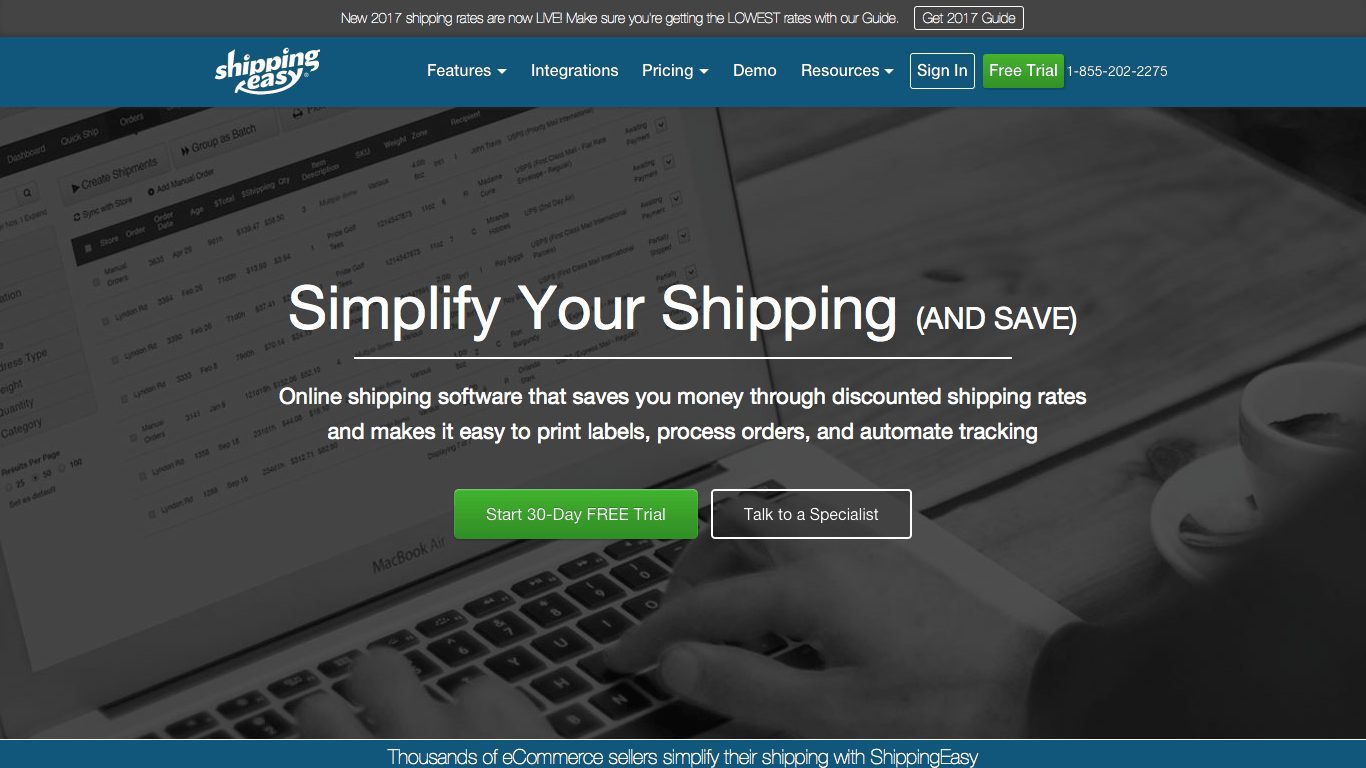
With more than 75 features designed to ease the process of inventory and product management, shipping, and tracking, Shipping Easy is an ecommerce workhorse. More than 50 app and ecommerce store integrations are offered for this SaaS, and shipping is handled through DHL, UPS, FedEx, and the USPS. The four standard pricing options range from $29-$99 per month and enterprise pricing is also available at $149/month.
Wave

A free alternative to apps like Xero and Zoho Books, Wave is a fast-growing accounting and invoicing platform for small and online businesses. Enterprise pricing is also available. Internationally supported and based in Canada, Wave integrates with Stripe, Workato, Paypal, Shoeboxed and Google Drive, among other apps. Features include direct depositing, payroll, yearly record keeping, invoicing, tax calculations, tax deductions, and receipts management. The interface is a little slow and the UX could be better, but this is a solid free app for ecommerce stores with small budgets.
EcomDash
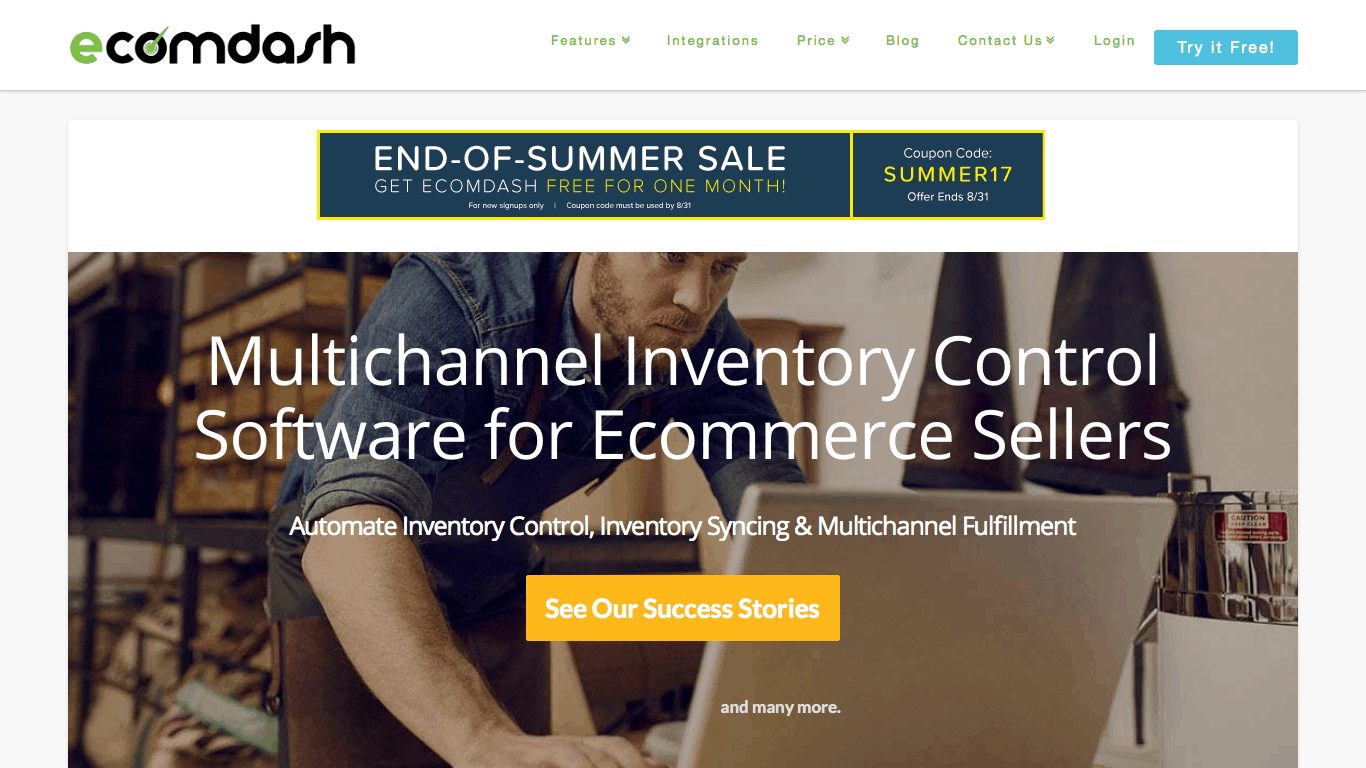
This web-based multichannel inventory management tool has an iPhone app for running your business on the go and a user-friendly, intuitive design. Pricing starts at $50/month, but a free trial is available for ecommerce store owners who prefer to test the waters before committing. Solutions for enterprises with more than 10k orders per month are also available.
EcomDash offers a buffet of features ranging from activity tracking to inventory optimization, order processing, and sales reporting. Integrations include BigCommerce, Shopify, and WooCommerce carts as well as QuickBooks Online for financials.
eComEngine

Created to help Amazon sellers save time by automating tasks, eComEngine software is designed to grow with your business. The company also provides many webinars and free resources for Amazon sellers.
FeedbackFive allows you to automate feedback and review requests, monitor reviews, and see the impact of your order volume + requests sent compared to reviews, ratings, and feedback received. There is a free plan if you’re just getting started; pricing ranges based on the number of emails you send and ASINs you monitor.
RestockPro is designed for FBA sellers who want to manage their inventory more effectively. Streamline shipments, build bundles, manage profitability, and more starting at $99 per month. MarketScout provides detailed Amazon product research with pay-as-you-go pricing.
Ecommerce Marketing Tools

Your ecommerce store won’t make sales if you don’t market it. There are hundreds of marketing apps, addressing everything from social media automation to affiliate and relationship marketing and loyalty management.
You need an option that allows you track campaign performance, minimizes your time spent on tasks like social, email, and content creation, lets your segment and track your customers, and doesn’t cost a fortune. It’s a tall order, but several of the tools mentioned below qualify.
EngageBay
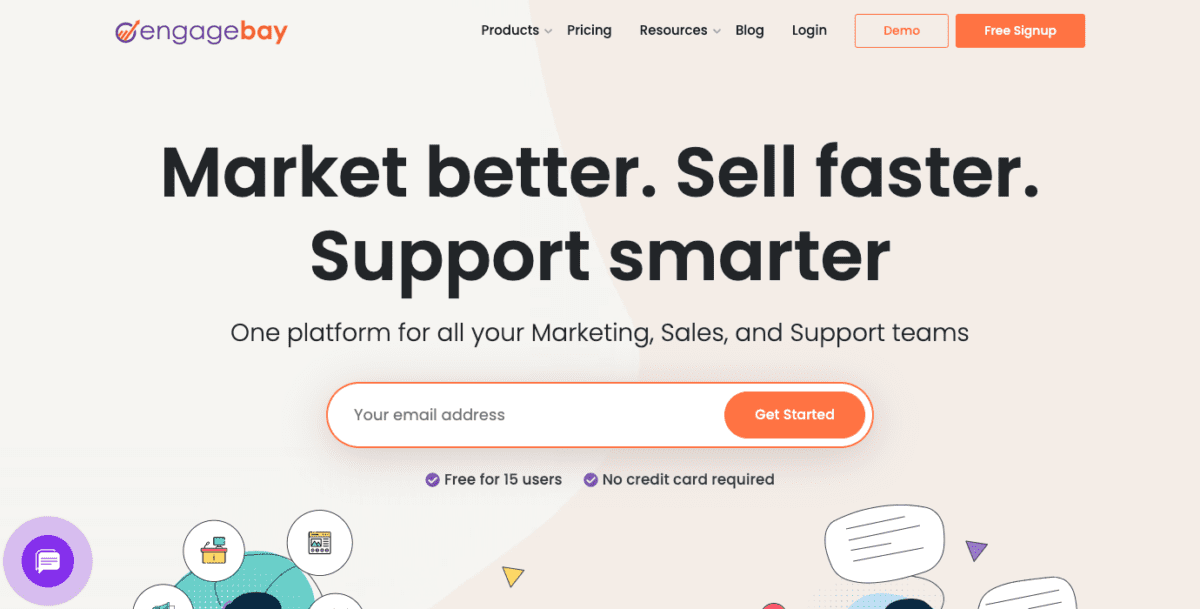
EngageBay is a platform that offers customer relationship management (CRM), marketing automation tools, a help desk, and live chat, all in one. It’s ideal to help with managing contacts, proposals and deals, sales, and scheduling appointments. You can also use it to build landing pages, forms, and email sequences.
Before, during, and after the sale, you need tools to help you manage your customer service. The help desk and live chat software help you do just that.
It integrates with many popular apps, including:
- Shopify
- BigCommerce
- WooCommerce
- DocuSign
- ReCaptcha
- Stripe
- Zapier
- And more…
Users can get the whole stack, or purchase only what they need. They’ve got a free plan for up to 15 users with no credit card required.
- The all-in-one pricing is $14.99/user/month.
- The Marketing tools are priced at $12.99/user/month.
- The CRM & Sales Bay tools are priced at 12.99/user/month.
- The Service Bay, or help desk plan, is free.
You can save 10% by signing up for an annual plan, and 20% with a biennial plan.
ProTexting
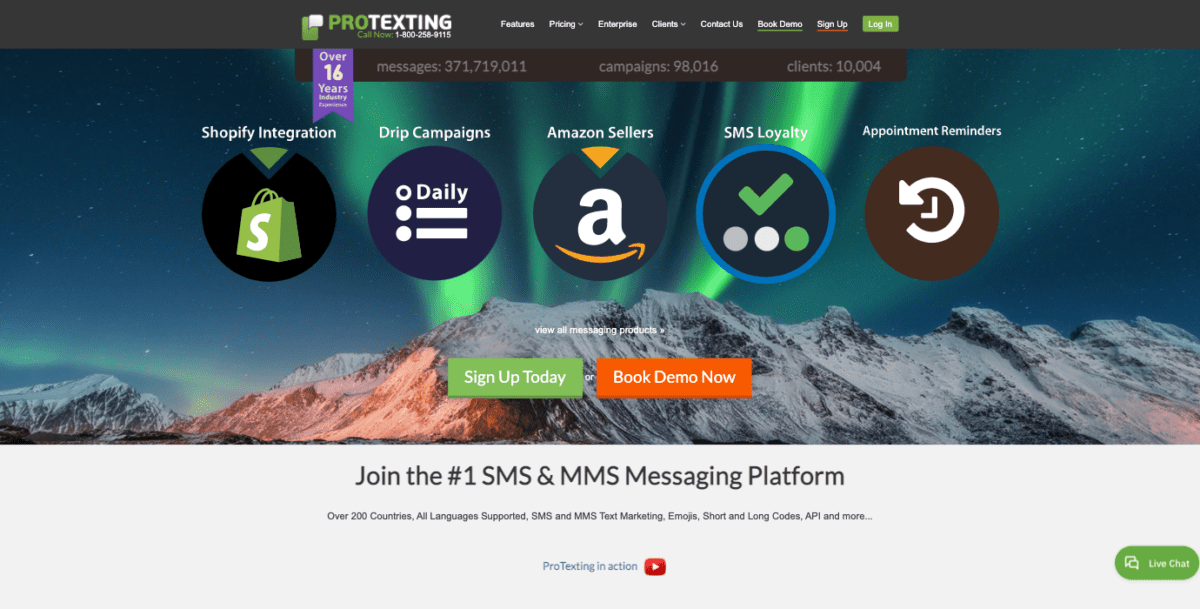
ProTexting is a SMS and MMS messaging platform that works in over 200 countries, with all languages supported. All major US carriers are supported, including AT&T, Verizon, TMobile, and U.S. Cellular. The platform operates in compliance with all mobile marketing rules and regulations.
Beyond text and multimedia messaging, Protexting also works with social media messaging. Multiple integrations are available, including:
- Shopify
- Constant Contact
- MailChimp
- Amazon Seller Central
- Zapier
- Custom integrations are available via API access
Pricing starts at $49/month for 1,000 credits and one keyword. If your business exceeds the limits of the Corporate plan at $499/month for 11,000 credits and 8 keywords, you can request a custom plan. There are no contracts or setup fees. Discounts are available for annual plans.
All plans include:
- Free unlimited signups
- Instant access to a text code
- Free unlimited incoming messages
- The option to change your keywords at any time
- MMS
- Unlimited email and phone support
Omnisend
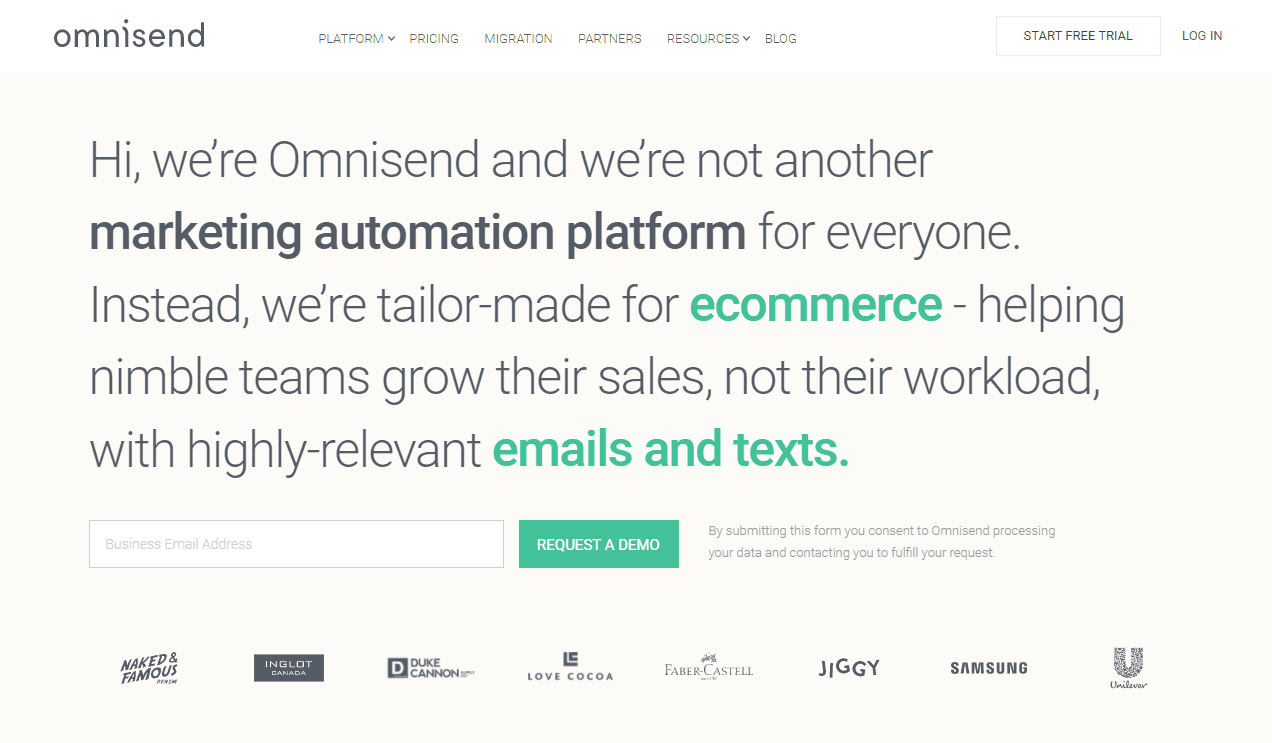
When it’s time to get serious about email marketing for ecommerce, many online sellers will find that generalized email marketing tools won’t work for them. After all, why settle for fewer features when there are email marketing platforms built specifically for ecommerce needs?
This is where Omnisend comes in. Packed with ecommerce-focused workflow and email templates, features that allow you to pull merchandise directly from your online store, and custom discount codes you set up in a matter of clicks, Omnisend offers a platform that responds directly to the specific needs of anyone selling online. From customizable marketing automation templates to a visual drag-and-drop email builder, Omnisend makes email marketing easy for ecommerce merchants.
Omnisend offers a free plan for basic email marketing, and automation comes included with their Standard Plan (starting at $16 per month). They also offer free SMS credits to try out SMS marketing with their Pro Plan ($99 per month). You can test any of their paid plans with a free 14-day trial.
Campaign Monitor
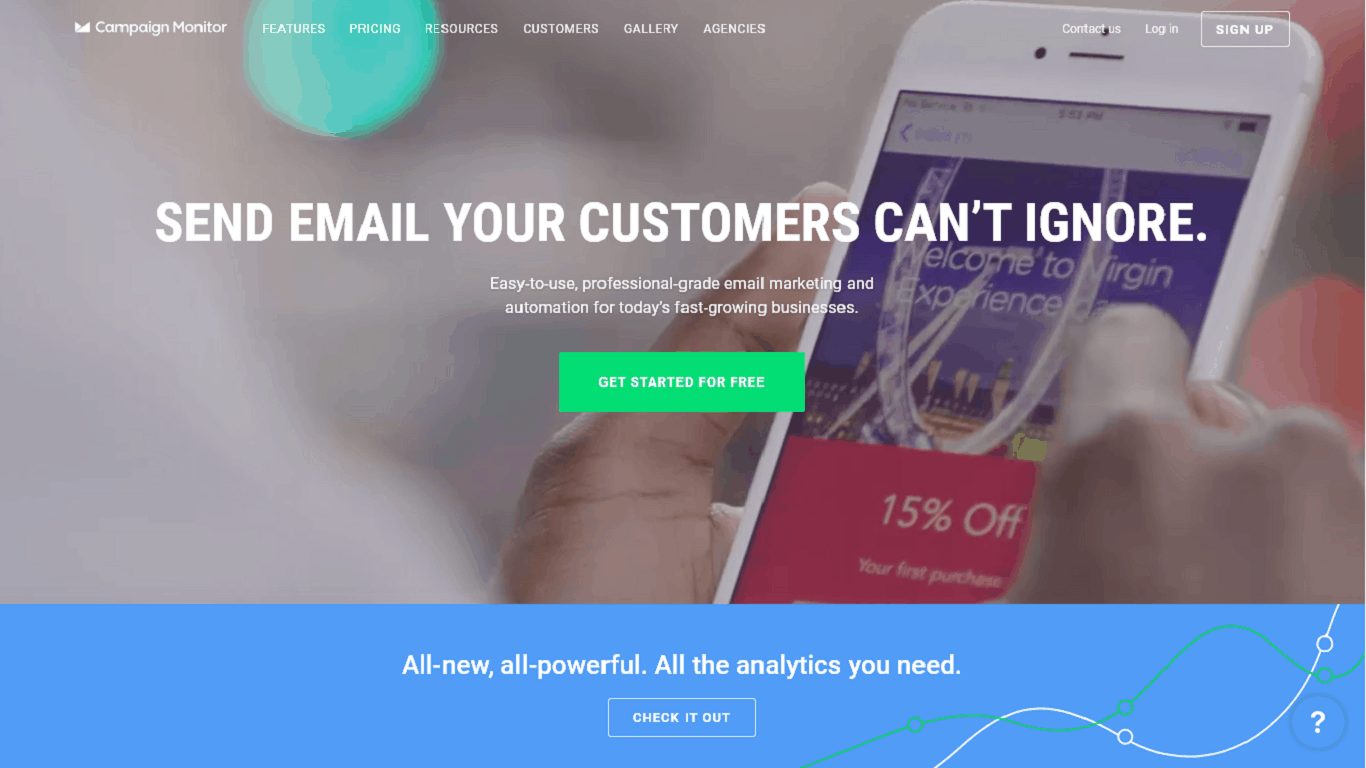
Offering seven levels of pricing ranging from $9/month-$899/month, Campaign Monitor offers a lot of price points for customers, but no free plan. The ouch point? This email campaign automation SaaS is MUCH pricier than competitors like MailChimp. There are fewer templates to use than most competitors, too, but the design quality is higher. Sticking with the theme of great design, the UX is amazing, and the drag-and-drop editor is beautifully simple. Importing data is a snap, and you can target and segment your list in beautifully complex ways. The tool includes a landing page creator, but it can be clunky to use. Support options are also limited. If you’ve got the cash and list size to opt for the unlimited plan, it might be worth your while. Otherwise, there are better tools available for less.
Feeds4

Feeds4.com is created to aggregate and distribute content for affiliate marketing. They provide assistance to merchants in distributing promotional content all over the web and facilitate importing of promotional content from merchants through convenient API, publisher platform, and code examples. Feeds4 offers Coupon Datafeed Plans starting at $99 per month.
Active Campaign
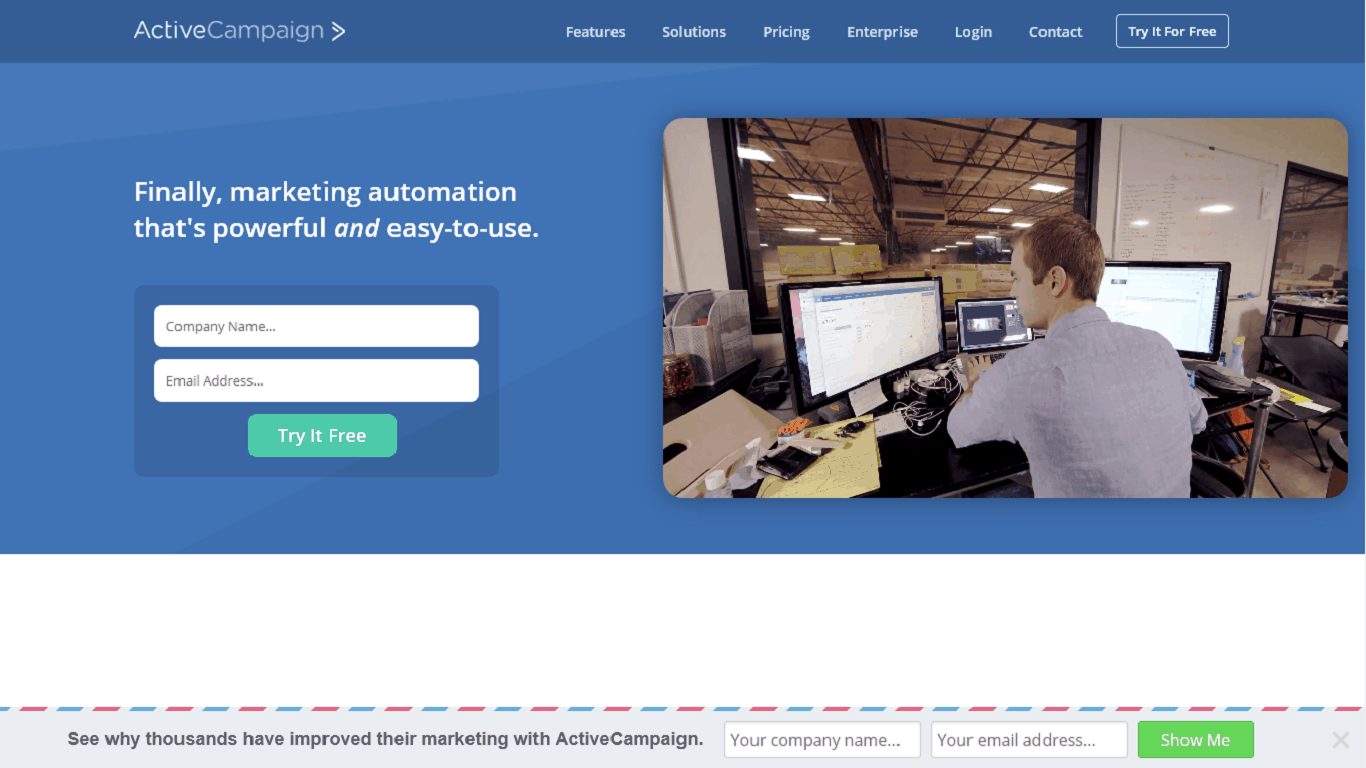
Although the user interface could be better and the sheer amount of data on your dashboard will probably intimidate you, Active Campaign has a great reputation for updating and changing based on user comments. A free trial is available and paid plans range from $9-$415/month based on the number of contacts on your list and user accounts you need. You can run a single campaign or base all of your email marketing out of Active Campaign, and trust their hefty analytics to help you make the most of the resulting data. One caveat if you’re thinking about this option: if you want to see how your email campaign looks on different devices and browsers, you’ll have to pay. Prices for these platform tests range from $5 for 5 tests to $60 for 100 tests.
Bulk.ly

In the world of simple social, Bulk.ly dominates by allowing you to upload a spreadsheet of social media posts and sending them to your Buffer account. You can shuffle post order, add relevant hashtags, categorize, and drip schedule your social media from a single CSV file. The tool makes content curation hassle-free but is still in beta, so you’ll need to request an invite if you want to use this tool. If you want to test the app, a 7-day free trial is available.
Buffer
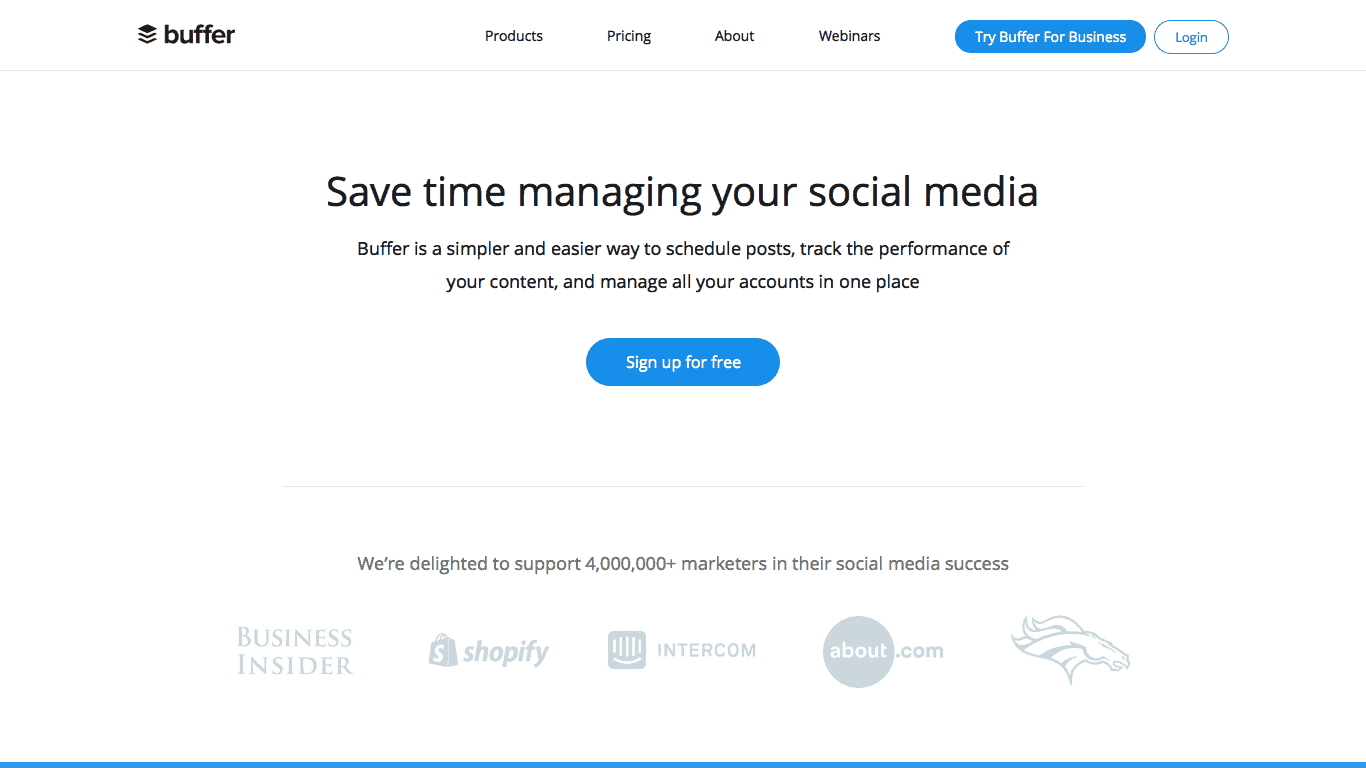
Content is still king, despite yearly predictions that its reign will end. Tracking your social media audience’s interest in topics, planning your social media calendar, and boosting engagement are easy with the Buffer app. The browser extension makes it almost too easy, and the analytics dashboard offers interesting insights into your audience’s behavior. Individual plans range from $0-$10 but don’t include the analytics tools, RSS feed, or the social calendar. Team and agency plans range from $99-$399. Prices are annual. The free plan does not integrate with Pinterest, and all premium plans have a limit of 2000 posts per month, regardless of the number of users (up to 25 team members can be added to 150 total social accounts on the most expensive plan).
OmniStar (OSI Affiliate)
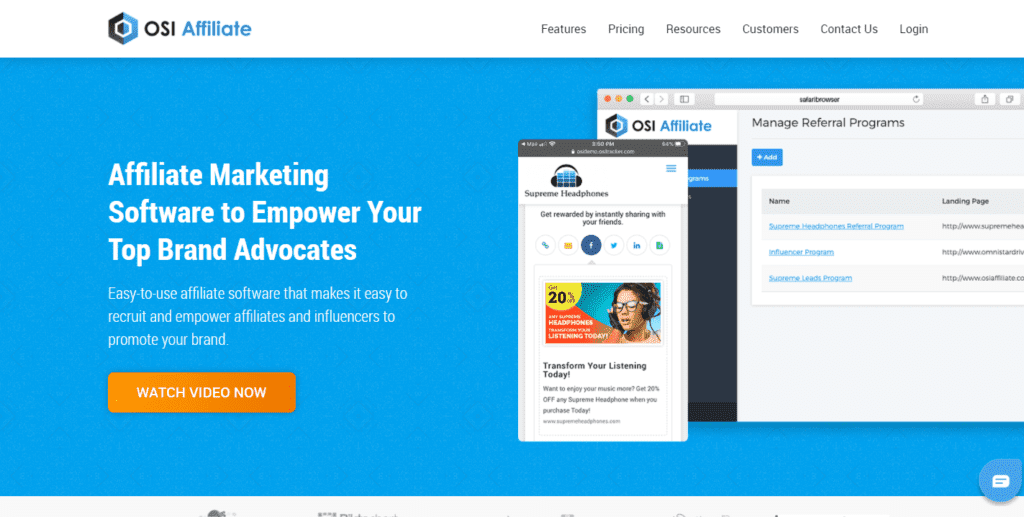
OSI Affiliate software is a web based software solution that allows any business to set up and manage their own affiliate or referral programs. The software includes tools that will allow affiliates to promote via email, social media or directly on their own websites. Through the administrative control panel the affiliate manager will be able to effectively track the activity and commissions earned of each affiliate. The commissions can also be easily paid through our direct integration with PayPal.
Antavo

Anything that makes shopping and interacting with your brand fun is going to drive sales. That’s the principle behind the gamification mindset, and you’ll find it echoed in Antavo’s app. Used by top retailers and small brands alike, Antavo will work to manage loyalty for your ecommerce store online and via mobile with more than 40 loyalty schemes. Pricing is quoted individually, based on your ecommerce store’s needs.
Smile.io
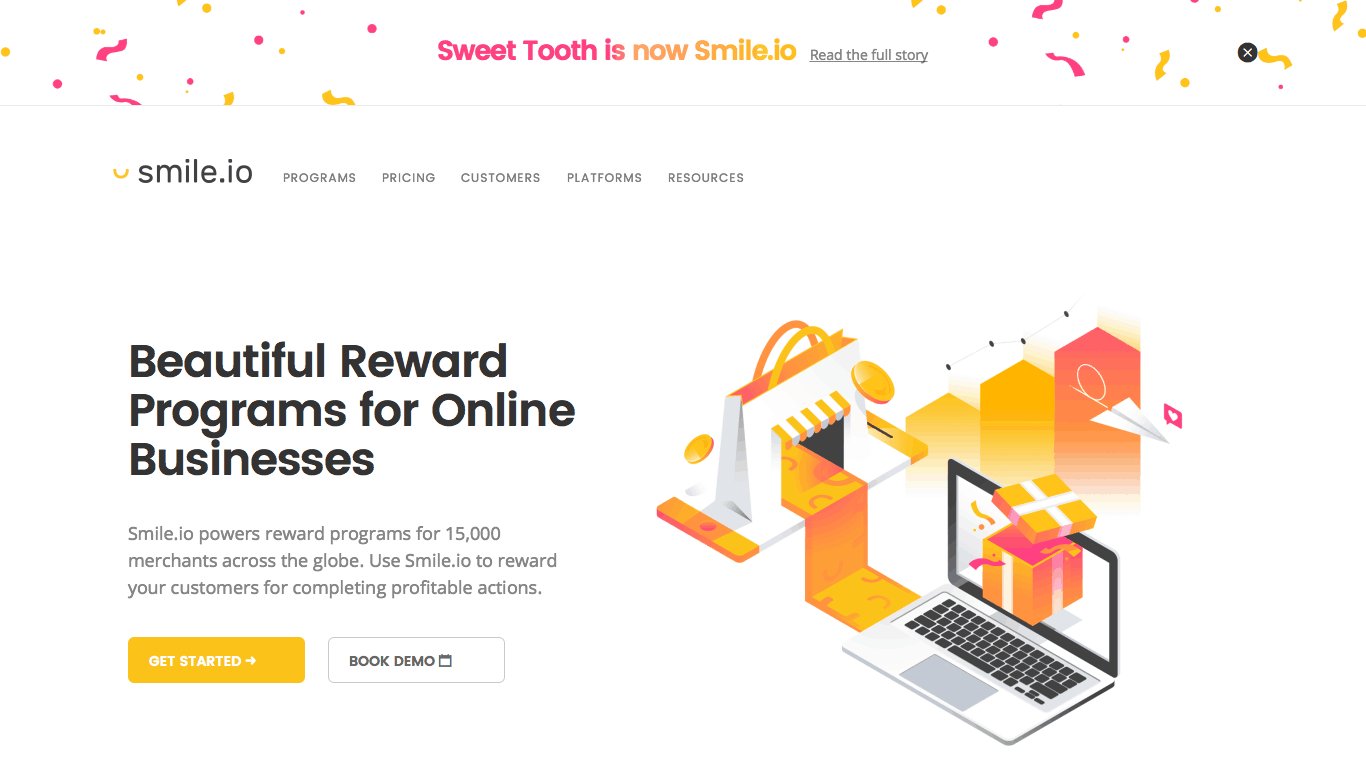
An alternative to Antovo, Smile.io offers points and rewards, encourages referrals from your customers, and helps you shower extra goodies on your top customers. The app is the new incarnation of Sweet Tooth, and has more than 15,000 active stores using it. Plans are available for ecommerce shops of all sizes, from single-person, single-product stores to massive ecommerce enterprises. The open API allows developers to integrate the app with any platform, and integrations with BigCommerce and Shopify are included right out of the box. Basic membership is $59/month, Small Business membership is $199/month, and Professional membership is $399/month. Enterprise clients are given custom quotes.
User Testing
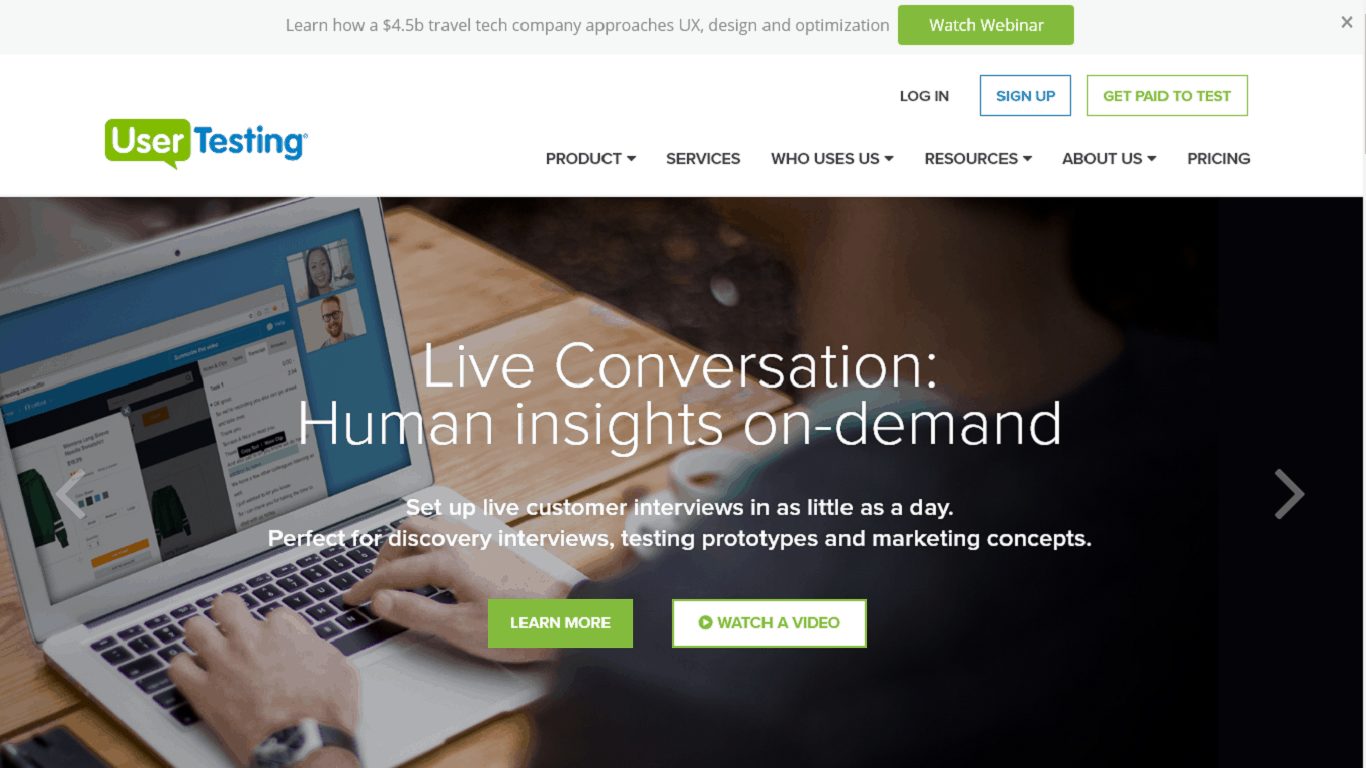
Designed to give ecommerce businesses insight into their target market’s reactions to their store and site, User Testing is an invaluable tool. Pooling viewers from across the globe who fit target market segments, the app asks audience members to provide live video reactions to your site. Uncensored and honest, they can be tough to listen to, but they’re worth it. Mobile apps can also be reviewed, and if you don’t like the standard User Testing 20-minute review, you can set up custom questions. Pricing information is provided in custom quotes.
Wish Pond

Capturing and converting leads is the function of this powerful app. Using contests, popups, and landing pages, it helps you to identify and segment your leads. The app also allows you to target email campaigns to these newly captured leads. User-friendly features like a drag-and-drop editor make it easy to customize your campaigns. Relatively new, Wish Pond is still working on some internal bugs, and customer service isn’t as good as it could be, however. A 14-day free trial is available and the app’s pricing options are monthly charges of $49, $99, or $199. The $49 plan does not have access to the app’s API.
Klaviyo
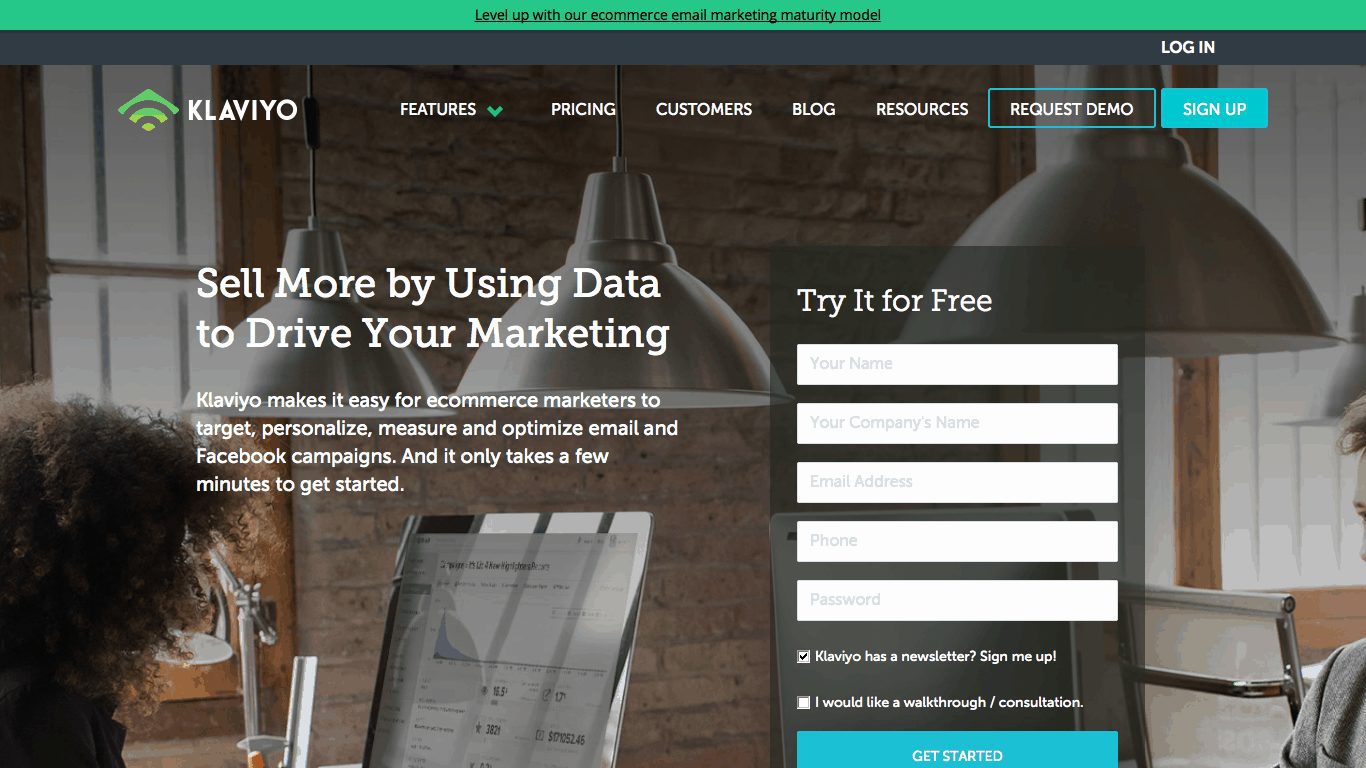
Klaviyo is a one-stop digital marketing tool to handle everything from A/B testing to email autoresponders. If you’re a novice in ecommerce and don’t have the budget to hire a full-time digital marketer to help you start drawing traffic, this app is a solid option. You can use Klaviyo’s API to integrate with any app you want, or work with one of their myriad integrations, including CRMs and top ecommerce platforms. The app is free for up to 250 contacts and increases gradually with your number of contacts, reaching $1,700/month for 150,000 contacts and custom quotes for businesses beyond that size.
Buzzstream

A personal touch goes a long way in ecommerce, something Buzzstream exists to facilitate. By targeting influencers directly, building personal relationships, and tracking conversations, you can extend your ecommerce store’s visibility and rack up a little good karma in the process. Teamwork on BuzzStream is easy, as the platform provides one centralized database for your organization’s members to work from. Work on link building, drive buzz, get PR exposure, and promote your store’s blog content from one platform. Pricing ranges from $99-$999/month; free trials and some free tools are also available.
Exit Bee
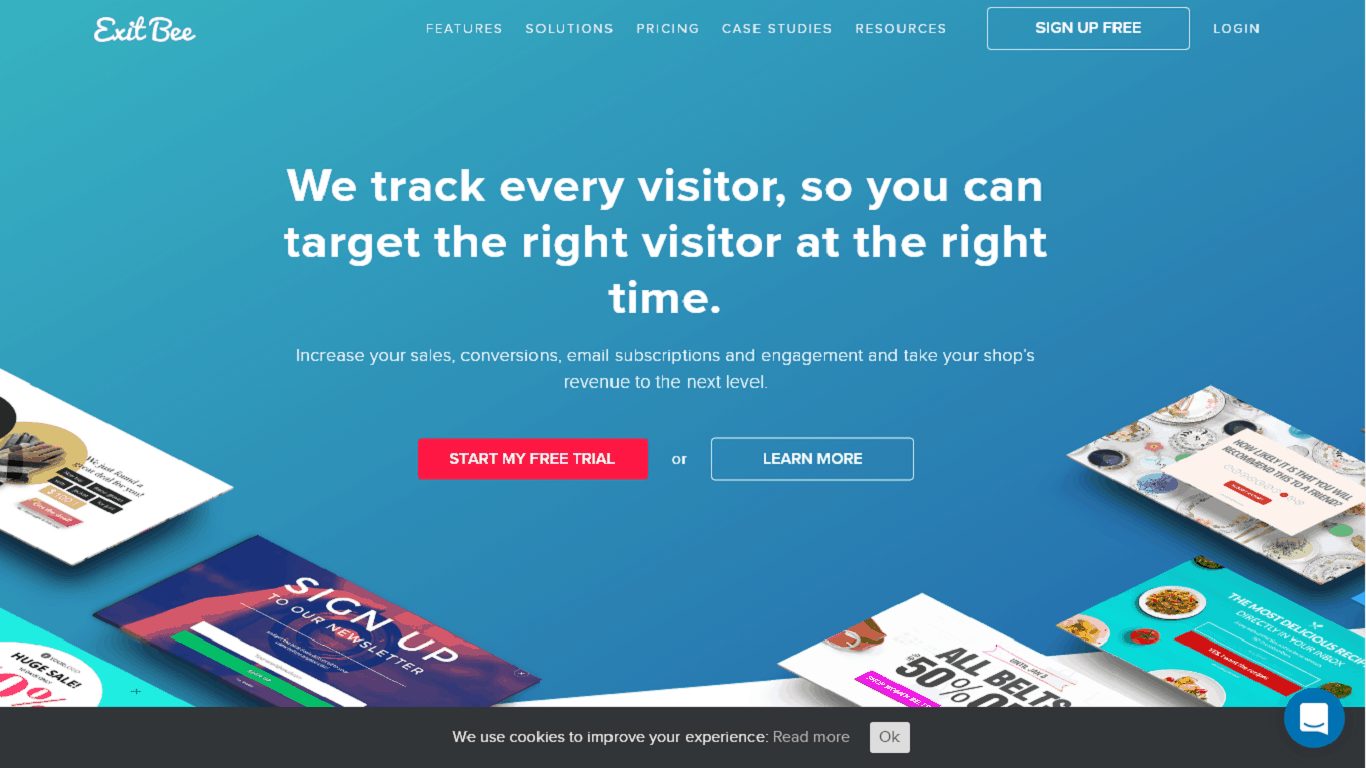
Using behavioral psychology to target customers at the right moment, Exit Bee’s popups increase conversion and email subscription rates, decrease cart abandonment, and provide site visitors with the carefully targeted messaging. Pricing plans start at $22/month for three campaigns. Basic, Pro, Starter, and Enterprise options are also available, and pricing varies based on the number of campaigns, site visitors, and websites you want to address. Installation is fast and easy, taking less than 2 minutes – even without tech expertise. The UX is nice and performance is smooth, but faster exit-intent pop-up delivery might be more effective.
Metrilo

Metrilo is a combined growth platform for ecommerce brands. It tracks customer behavior on site and delivers marketing and sales performance insights to be used for optimizing marketing spend and ROI, CRO, product management. The customer database offers a comprehensive look into individual customer journeys and segmentation to identify particular customer groups. All this data is integrated with the email functionalities for relevant engagement and driving repeat sales (no limit on contact lists and emails sent). Pricing depends on the features used starting with an Essential plan, analytics only, at $119. Metrilo integrates fully with shops on Shopify, WooCommerce or Adobe Commerce and doesn’t need any setup to start processing data.
Store Ya
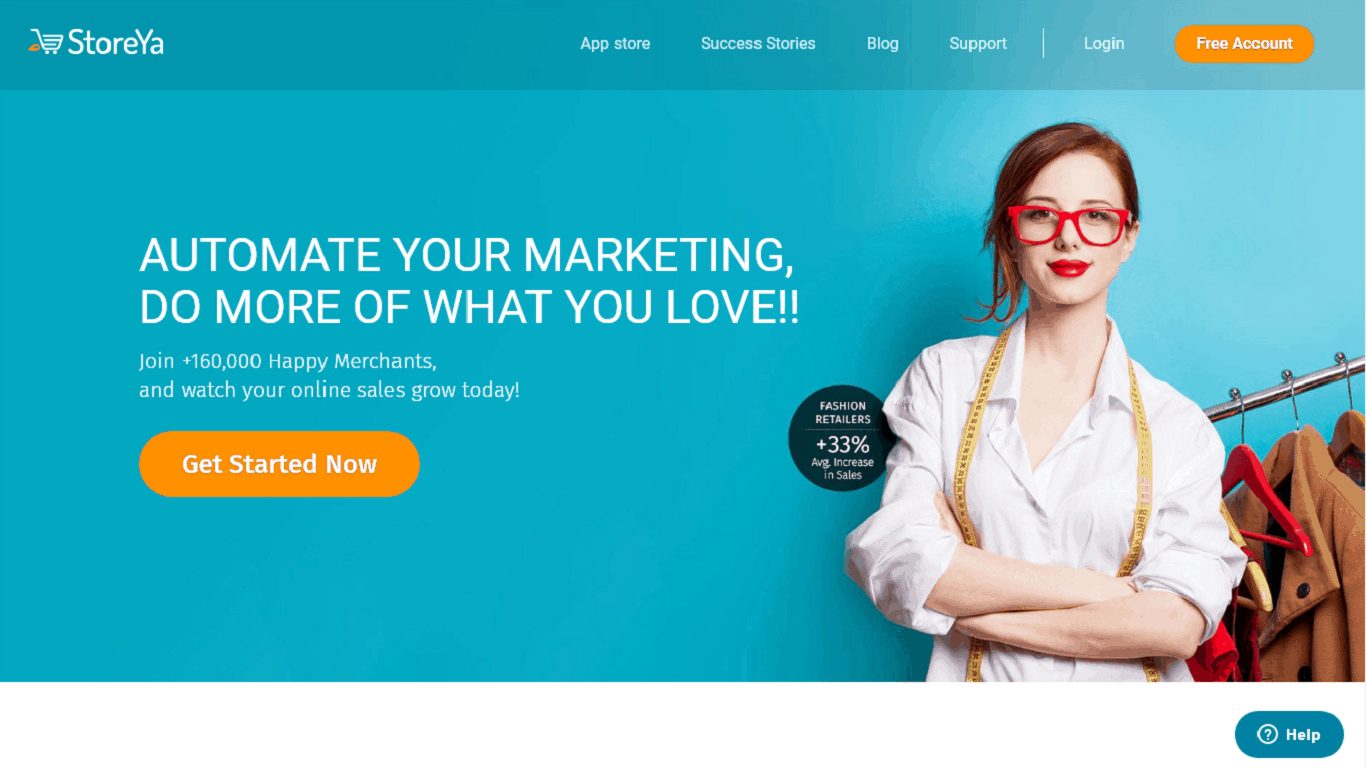
Offering a full suite of ecommerce apps, Store Ya makes this list for the app developers’ creativity and friendly UX. Top apps include the Facebook Shop and the Traffic Booster. Designed to marry social media and digital marketing functions, most of Store Ya’s apps are free – a boon for ecommerce store owners on a tight budget. The most expensive app, Facebook Shop, is $79.99/month.
Instasize

Brands, no matter how big or small, need to create a consistent aesthetic that lets people easily identify with the lifestyle of the brand. Instasize is a mobile app that puts all the editing tools content creators need to ensure that their images are cohesive and on-brand. It’s an all-in-one photo and video editor that lets you play around with a variety of professionally-designed filters, themed borders, collages and customized text styles for a more personalized Instagram feed. The basic version is free to download on iOS and Android, but one can also opt to upgrade to Premium for $4.99 a month to access all the new filters and borders Instasize releases every month for their premium members.
Tools Used for Ecommerce Analytics

Analytics tools use data science to help you understand what your customers want, why they came to your store in the first place, and how you can attract more of them. Keeping an eye on these statistics is not a bonus in ecommerce; it’s a necessity. Up-to-the-moment accuracy, customer behavior tracking, report generation, and insights into your sales and marketing process and website conversion optimization insights are crucial to your business’ ultimate success. Luckily, getting your hands on massive amounts of useful data is usually cheap, if not free. The tools below make using that data easy, even if you aren’t a statistician.
VWO: Visual Website Optimizer
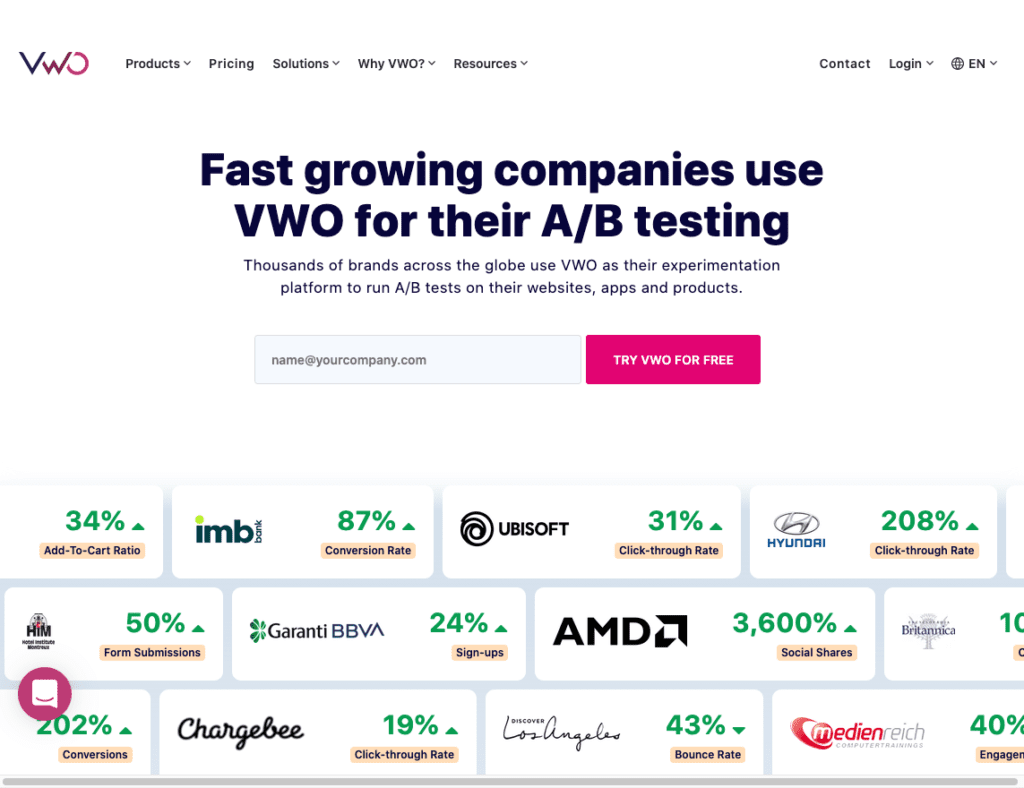
The list of features offered by VWO goes well beyond basic analytics. The tool offers heat maps and click maps you can use to optimize conversions. It integrates well with most major ecommerce platforms and allows you to test, analyze, edit, and target campaigns. Each plan offers custom pricing. Free trials are available for each product.
Optimizely Analytics
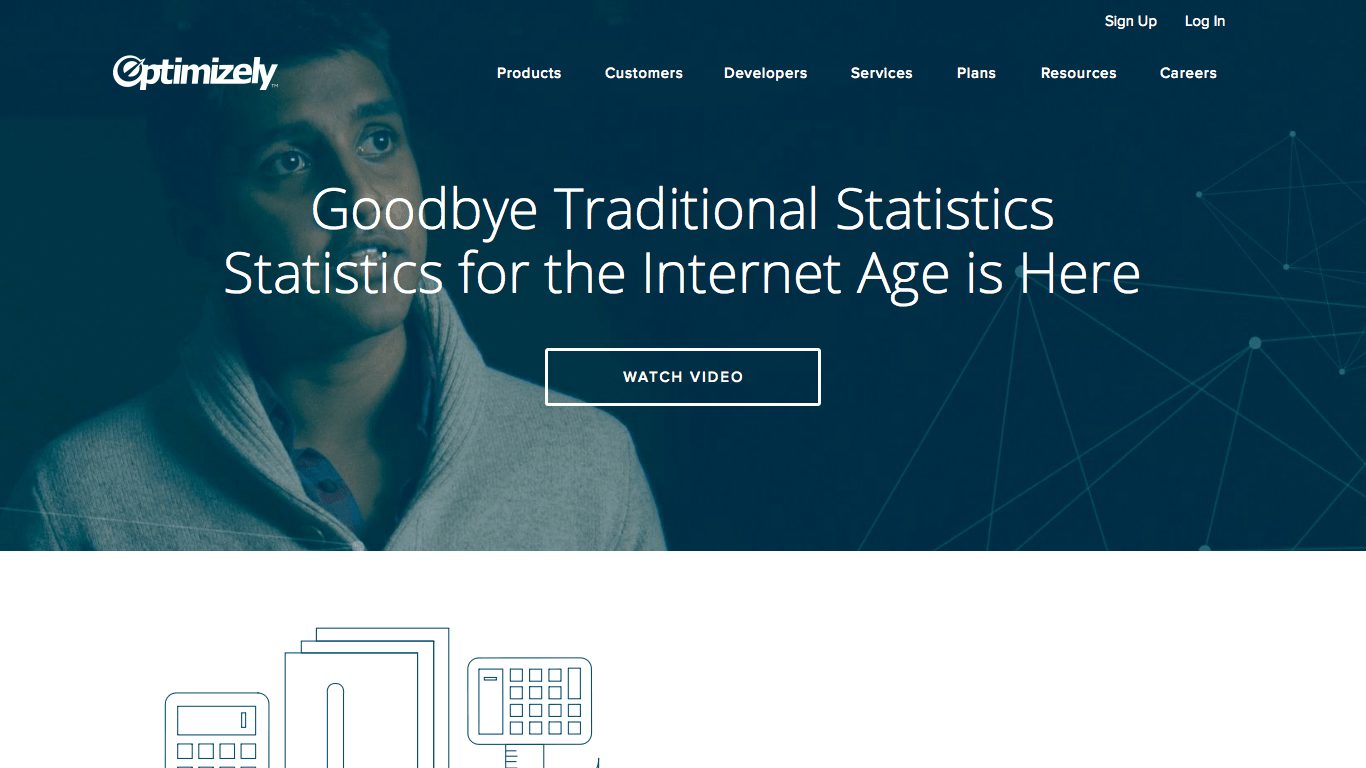
Developed in collaboration with Stanford statisticians, Optimizely’s analytics Stat Engine is a powerful tool that uses sequential testing to help you evaluate performance over time. One of a number of features included in Optimizely’s five ecommerce tools (their 6th tool is for TV), it’s the workhorse of these apps’ analytics. Pricing for Optimizely’s products in custom quoted, although a free trial is offered for the web experimentation tool.
Google Analytics

Free and brimming with information that can help you improve conversions on PPC ads, optimize your site and product descriptions, and track visitor behavior on your store, Google Analytics is a must-have for any ecommerce business. If you aren’t familiar with the way Google Analytics works, Google offers free training to help you master this powerful tool. There are many apps with better analytics, but Google is still the number one powerful analytical tool – use this tool AND something higher end to get the most bang for your buck. Of course, there are alternatives that you can consider
Neatly
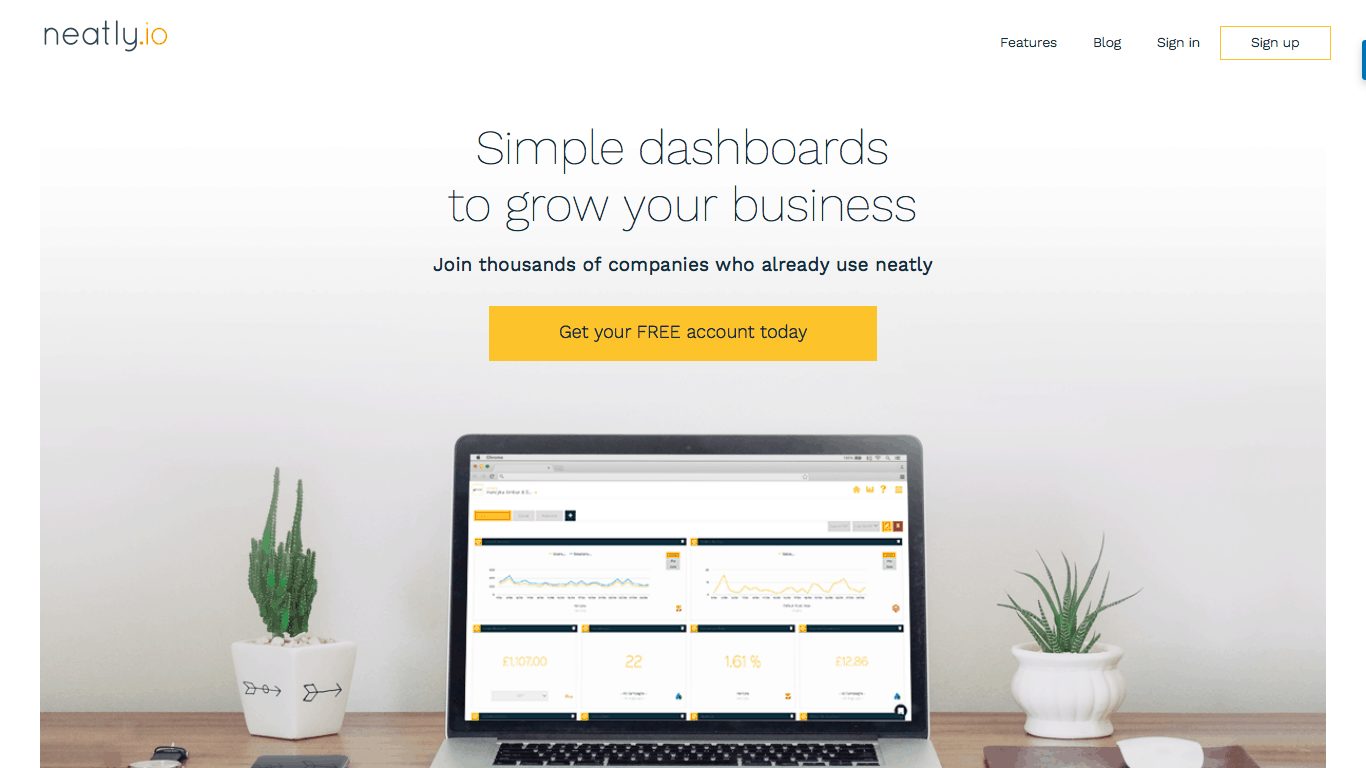
Designed to ‘neatly’ organize all of your days, allow you to track and set goals, and deliver insights about your marketing, this analytics app offers a smooth and attractive user interface. Neatly gives you the ability to track all of your KPIs on a single, customizable dashboard. The tool integrates with more than 45 top ecommerce apps, including Shopify, MailChimp, QuickBooks, PayPal, and (of course) Google Analytics. The best feature of this app is price, though – although initially offered for a lifetime membership fee of $49 through AppSumo, the app is FREE (with some strings attached – onboarding and live chat support will cost you.) There’s a fair use policy to help limit the number of companies using the platform at a given time, so make sure to give it a good read if you opt for Neatly.
Conclusion
When you first set up an ecommerce business, you feel invincible. Excitement is high, but your budget often isn’t. Remember to plan carefully, choose tools and platforms that can scale with you, and invest where it counts.
One area I wouldn’t overlook is marketing. Without customers, your business is nothing but an expensive dream. Without marketing, would-be customers don’t know you exist.
The tools you use are really based on your business model, technical knowledge, and marketing budget. If you have your own line of branded products, and a deep marketing budget your toolset will be very different than a drop shipping business with no marketing budget.
Don’t overlook ways to monetize your store outside of the products you’re selling, too. Affiliate marketing is a smart way to boost your product’s visibility when you’re the one offering your product to affiliates. When you sell affiliate products on your site, you get the benefit of free niche and product testing. Both are win-win scenarios.
Did I miss your favorite ecommerce tool or forget to mention something you love or hate about one of them? Tell me about it in the comments.







